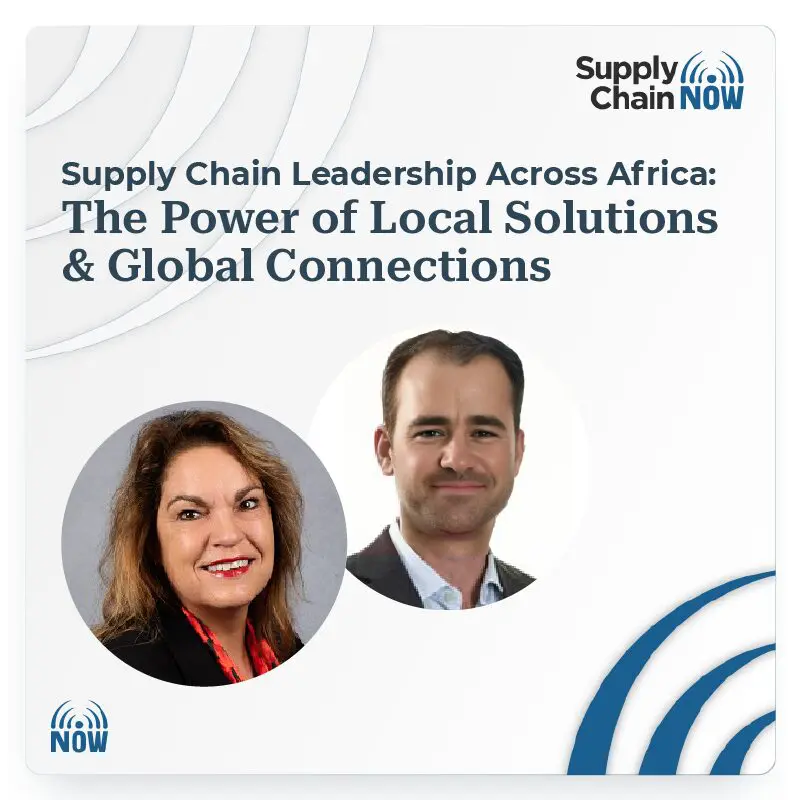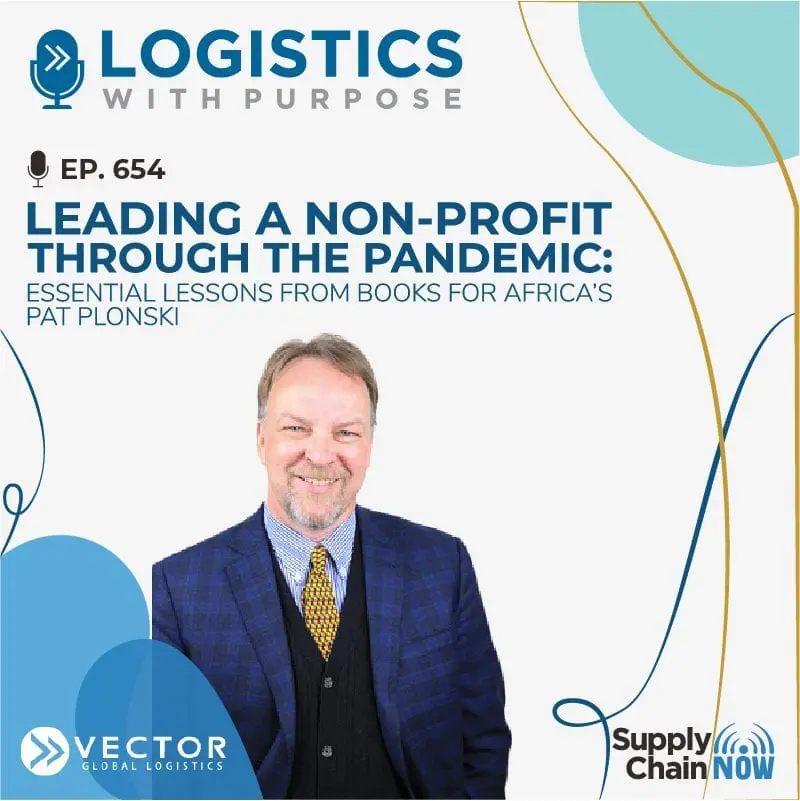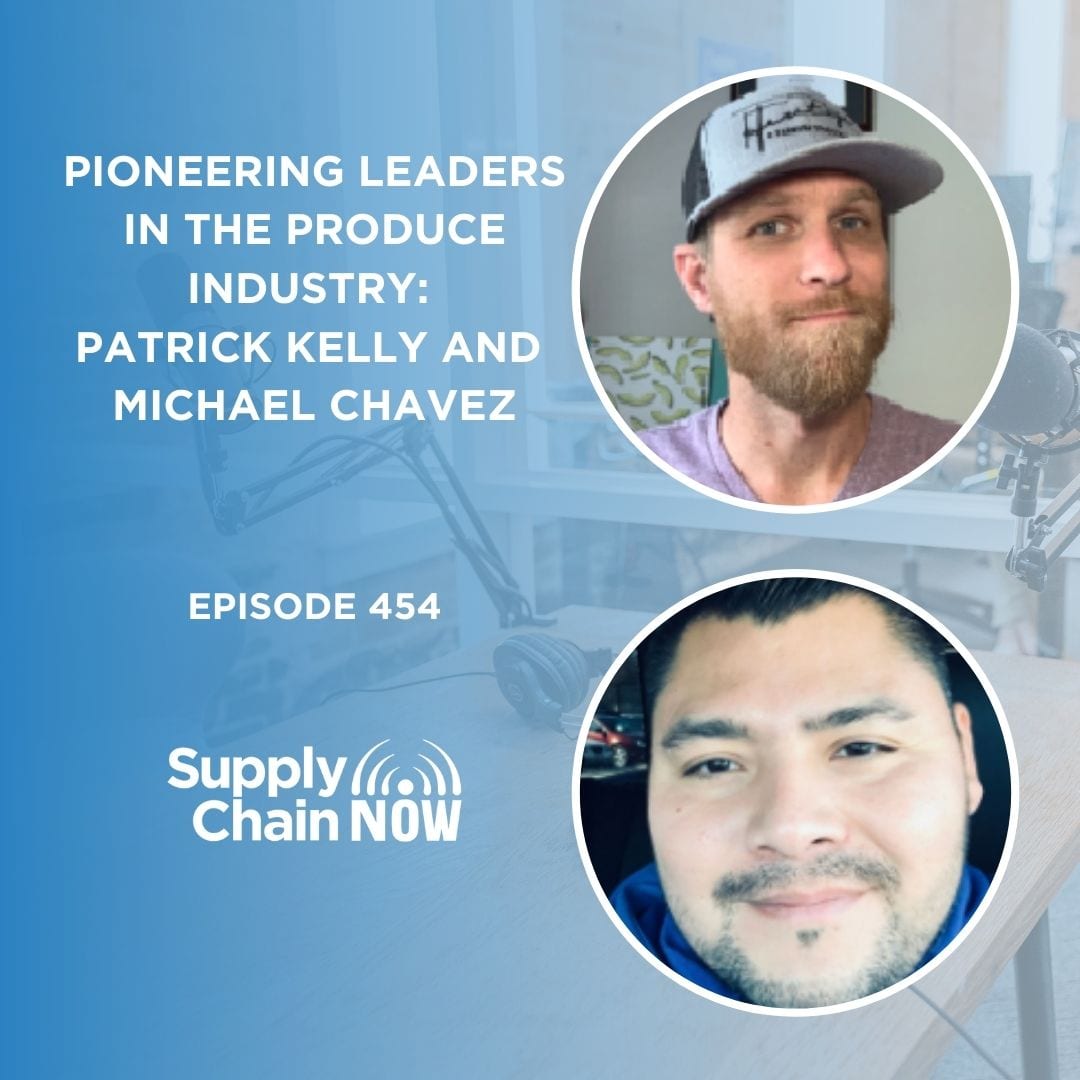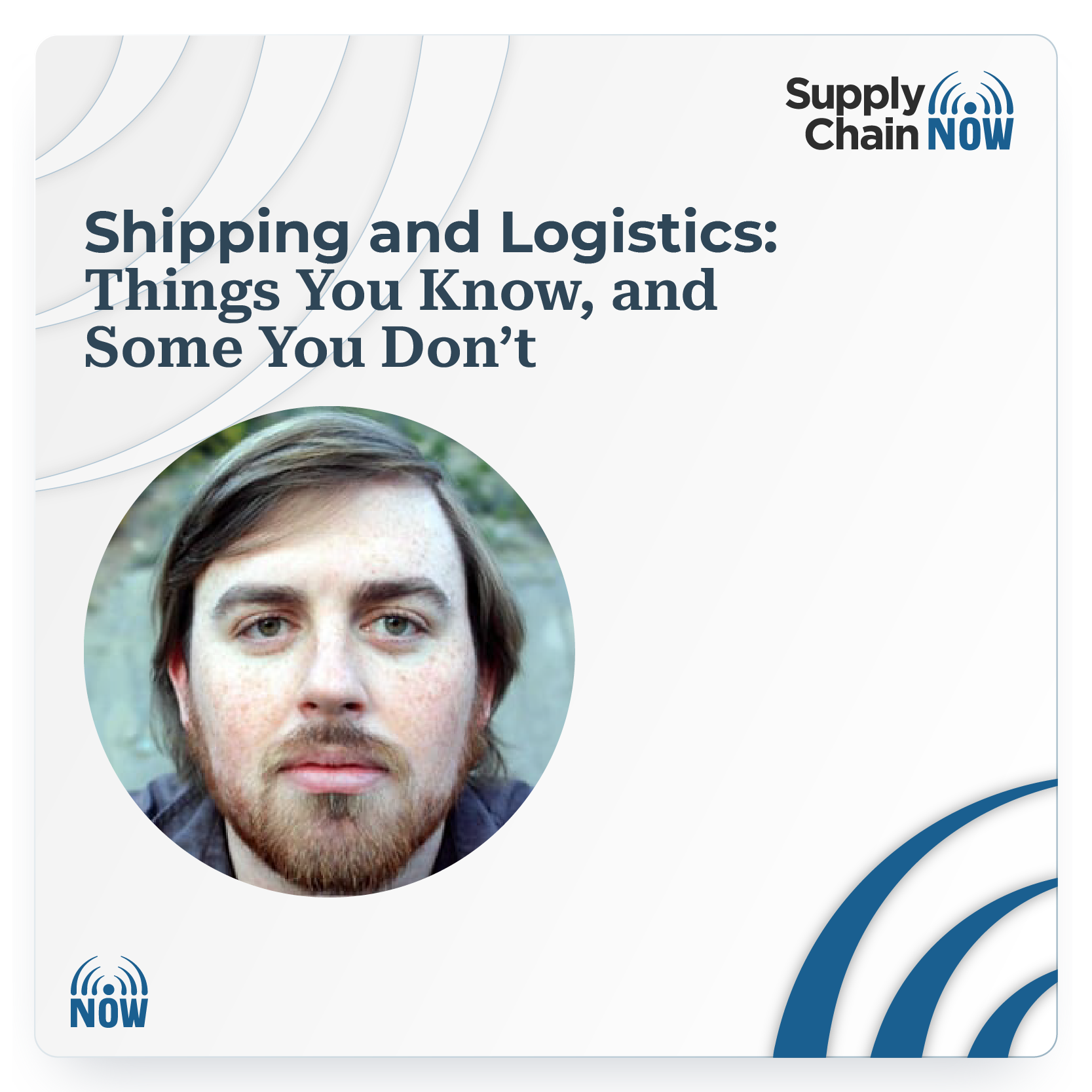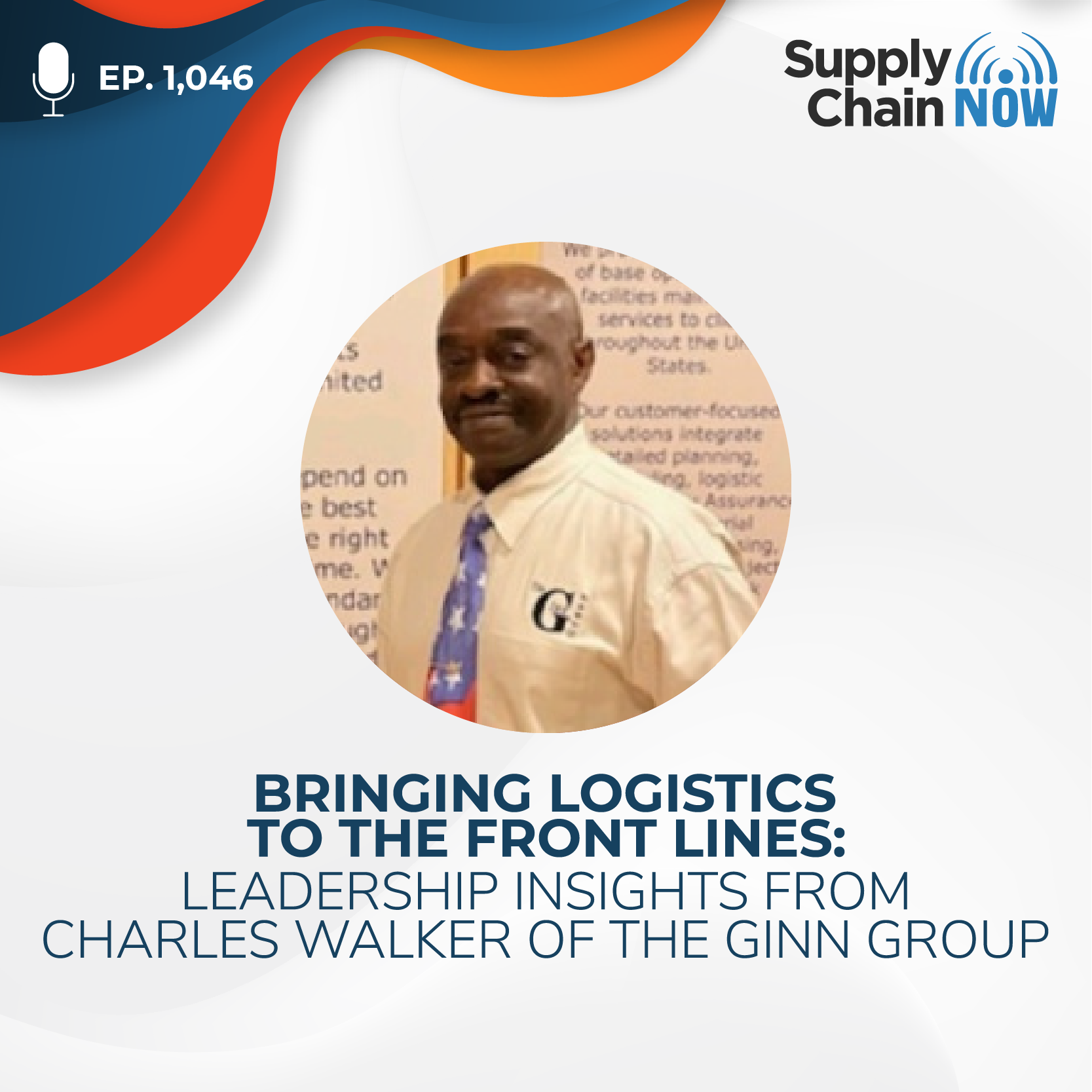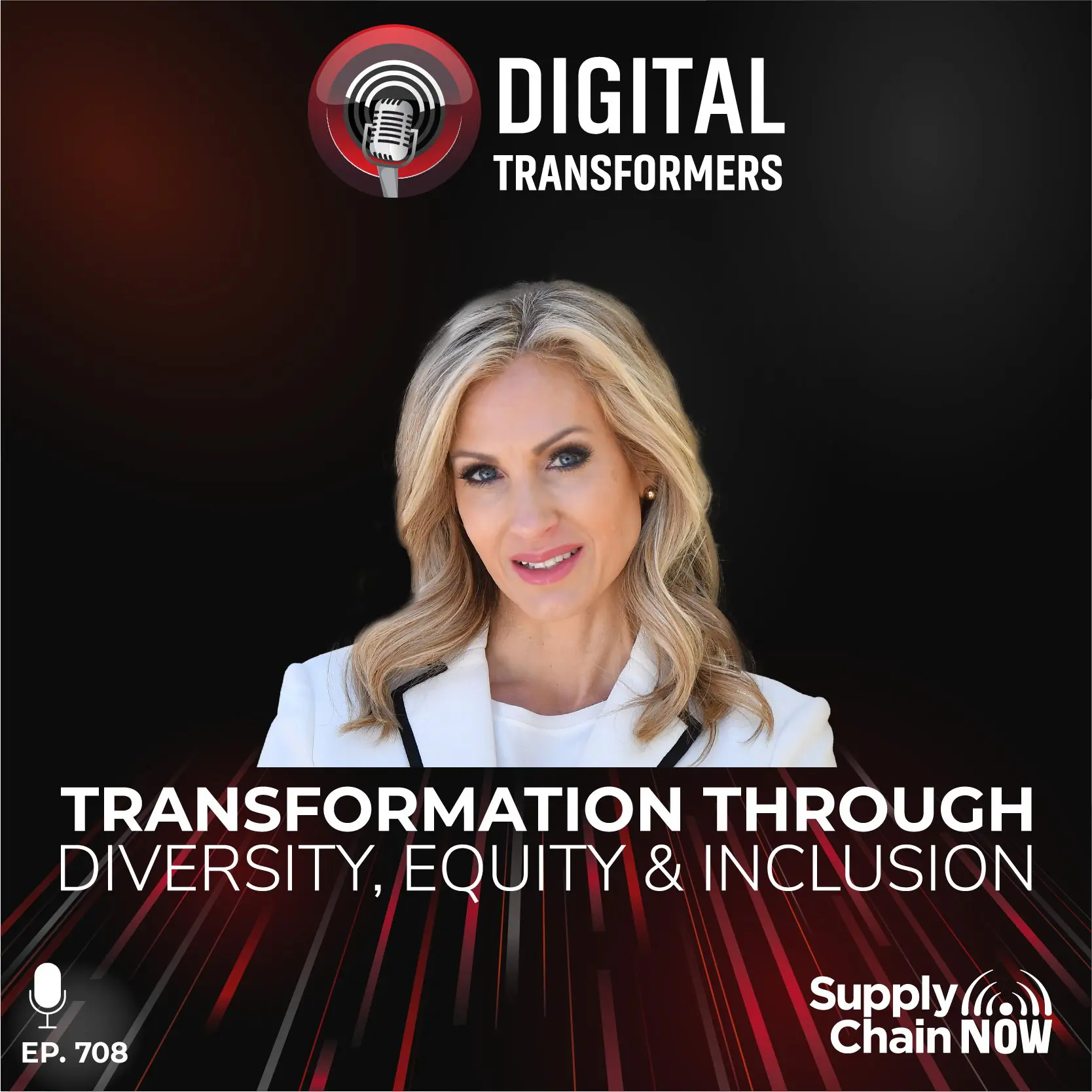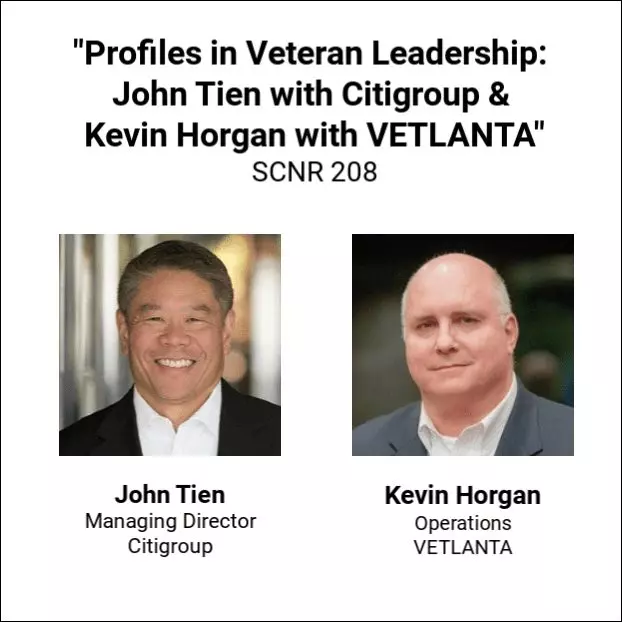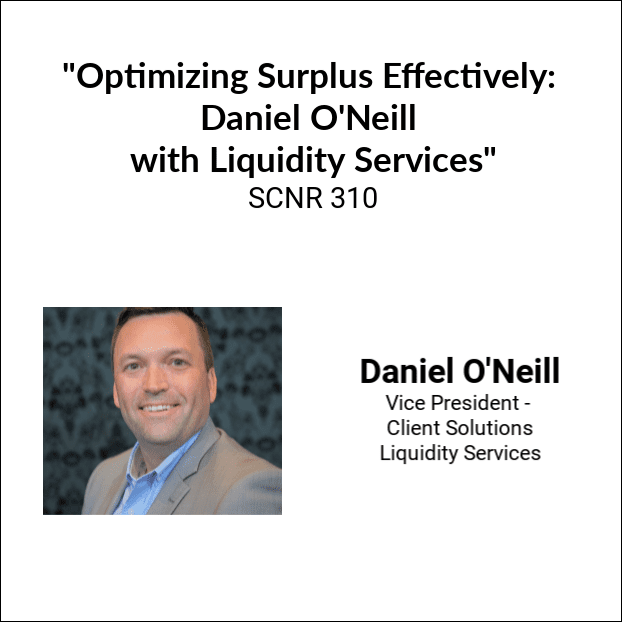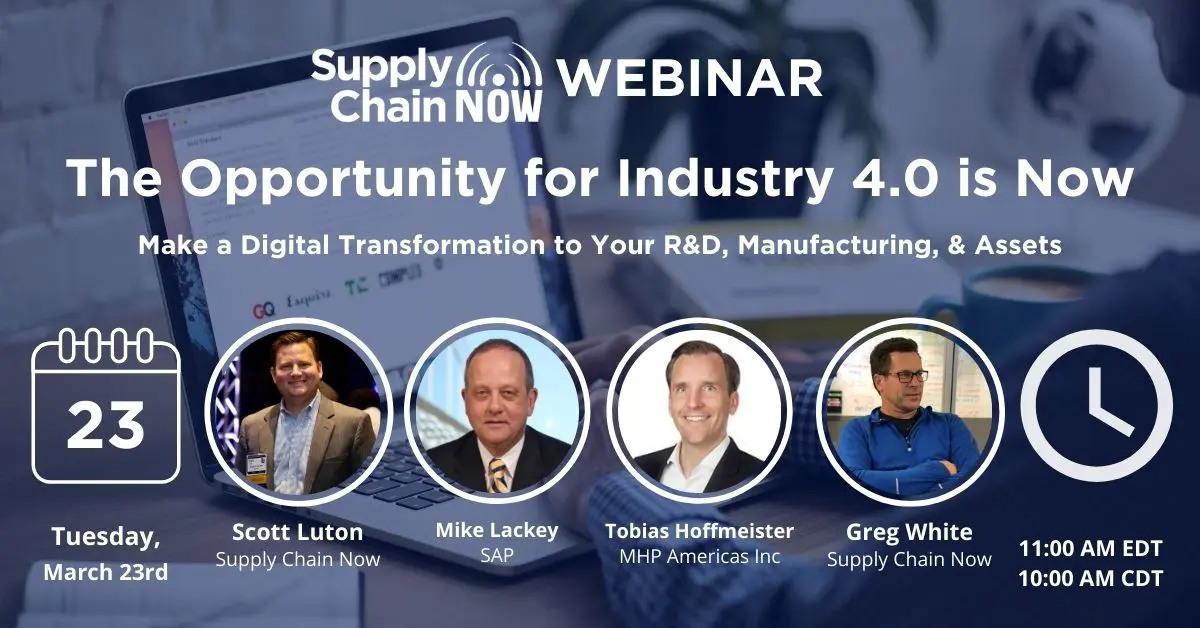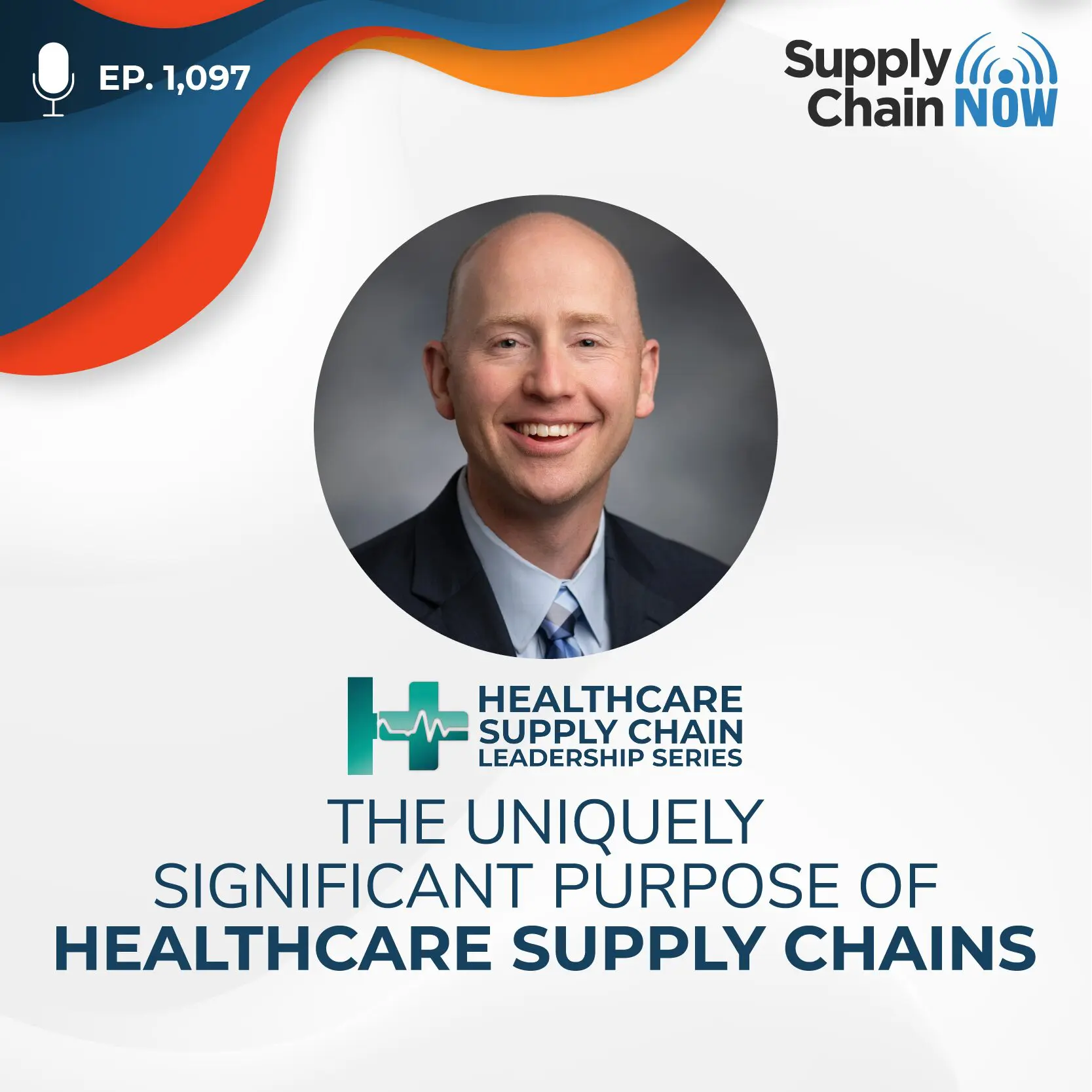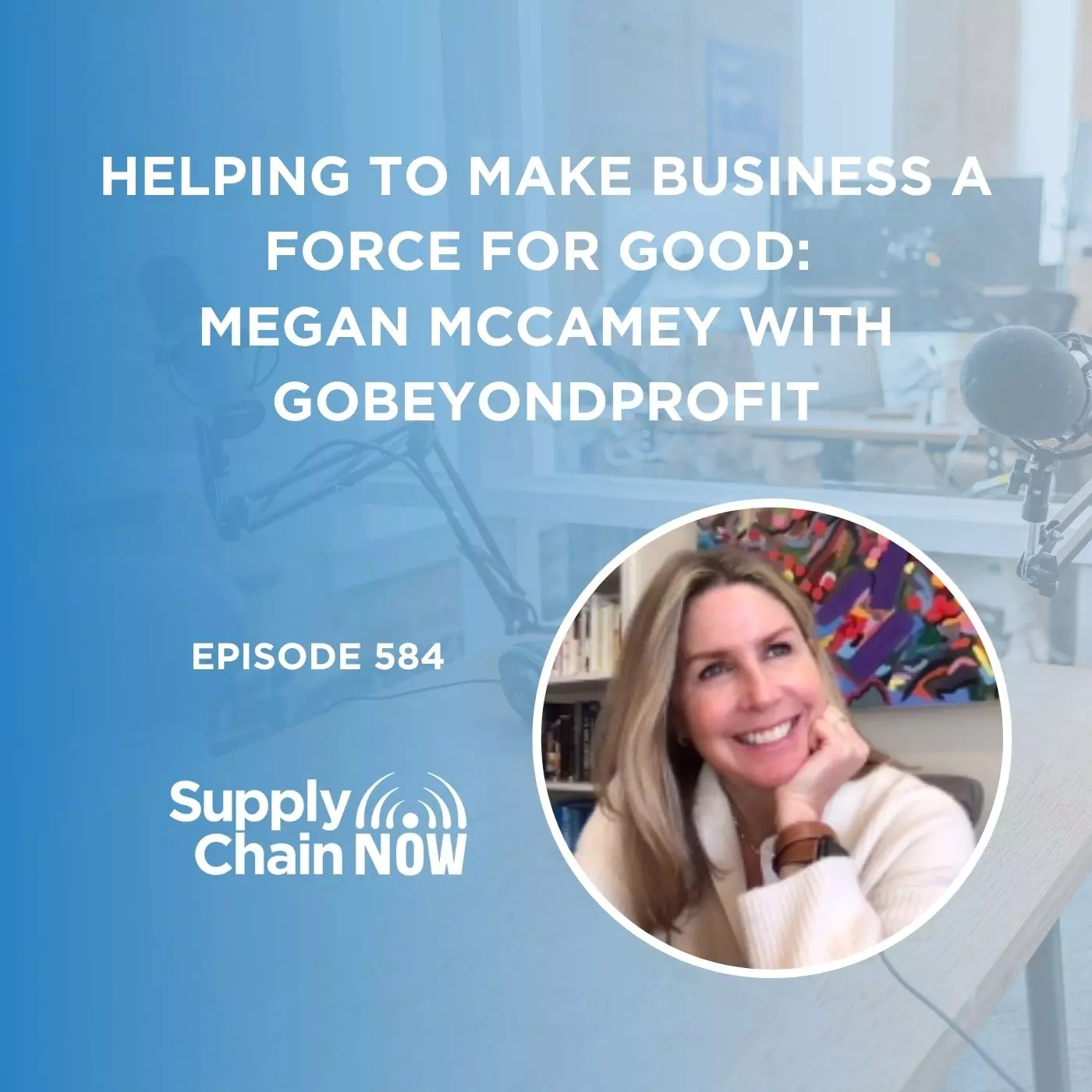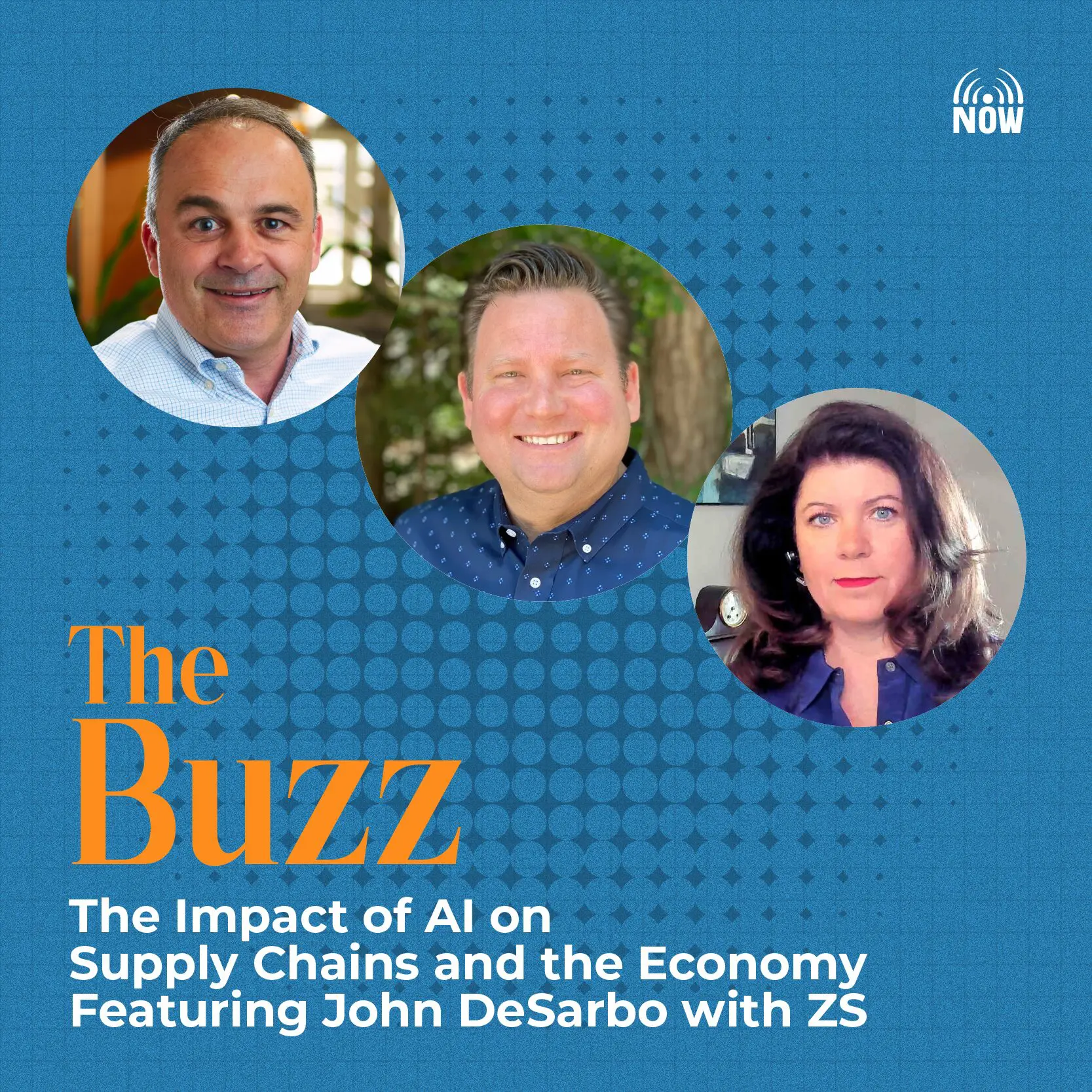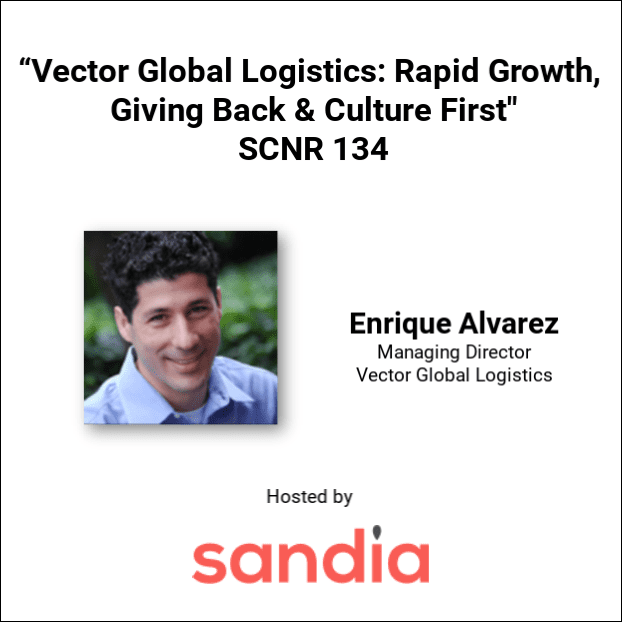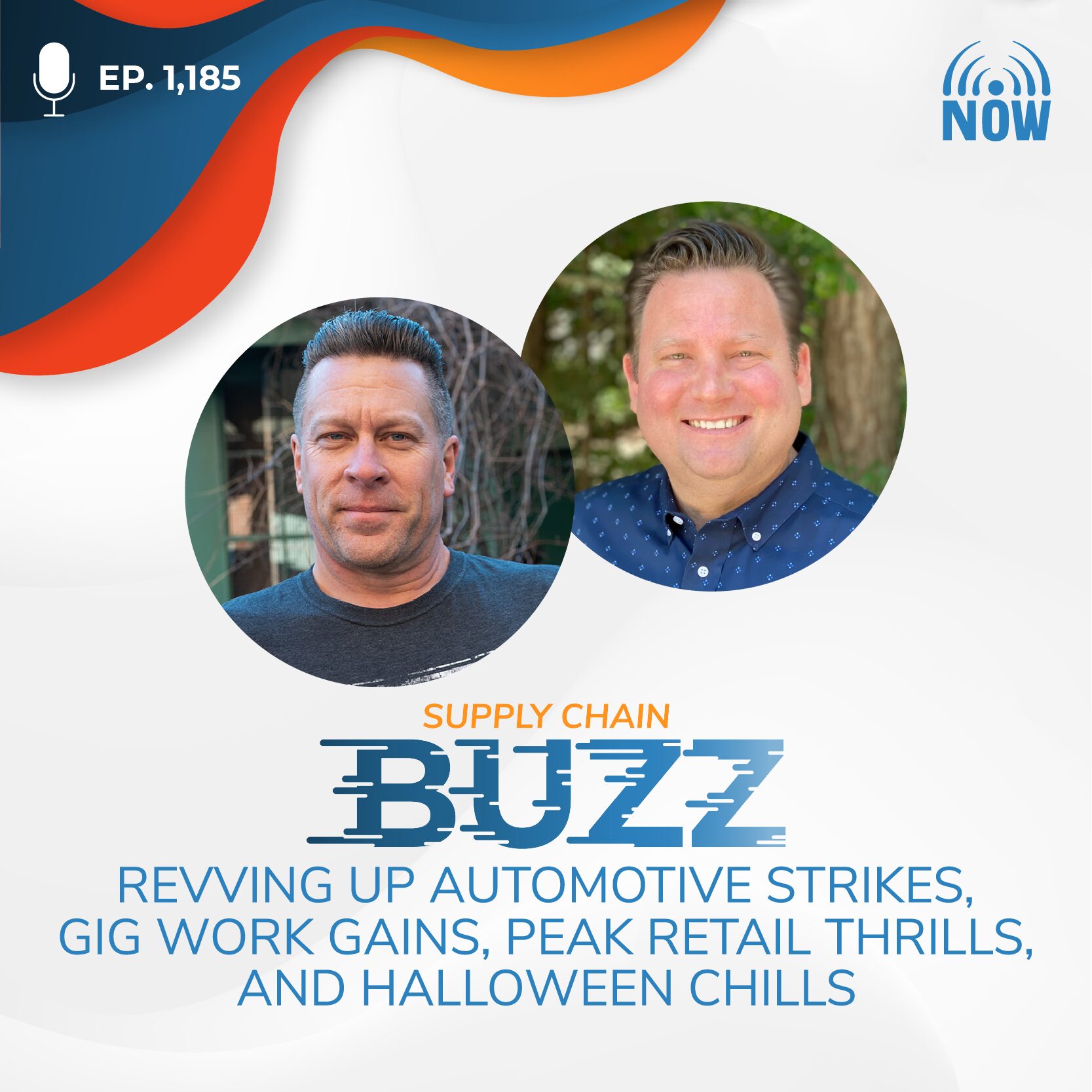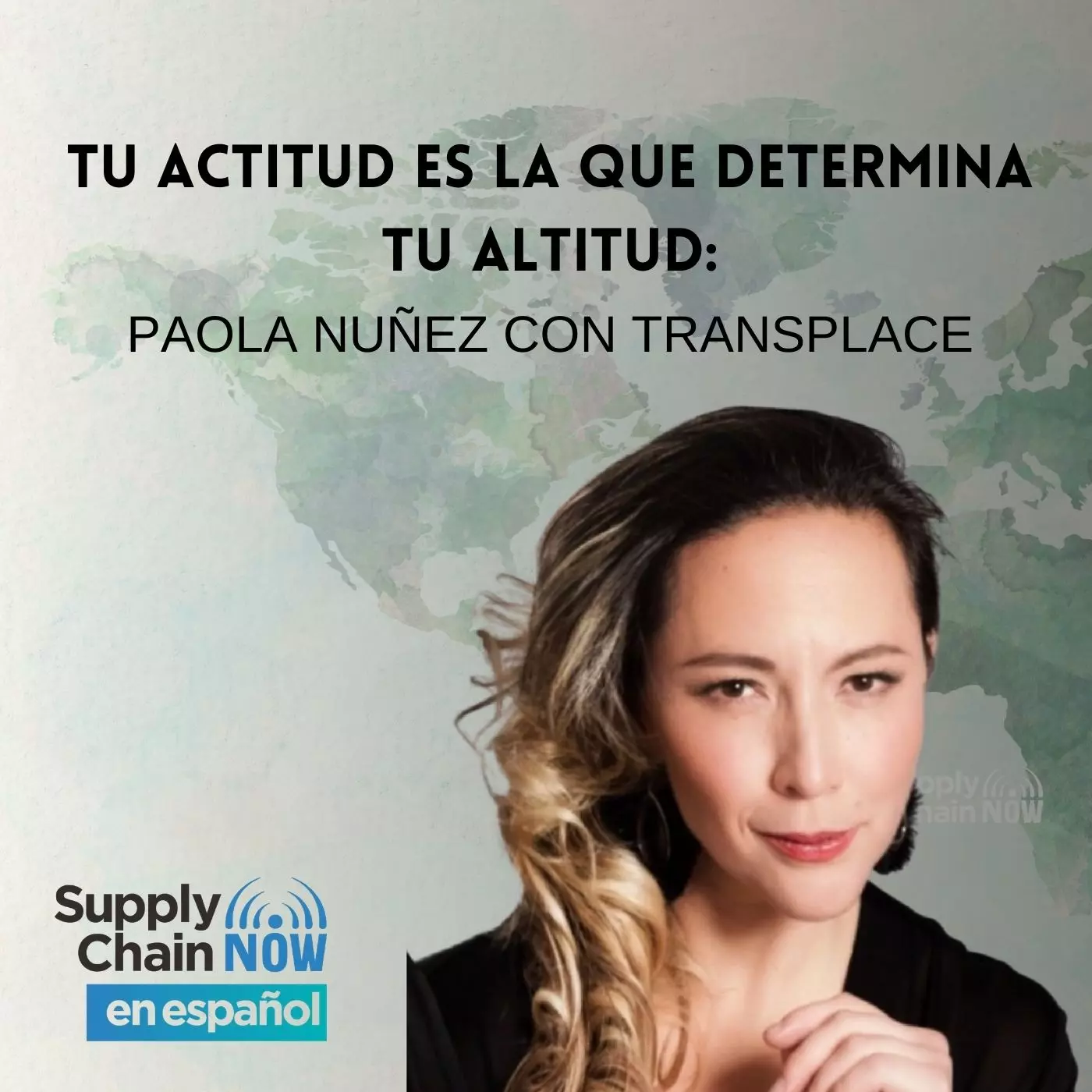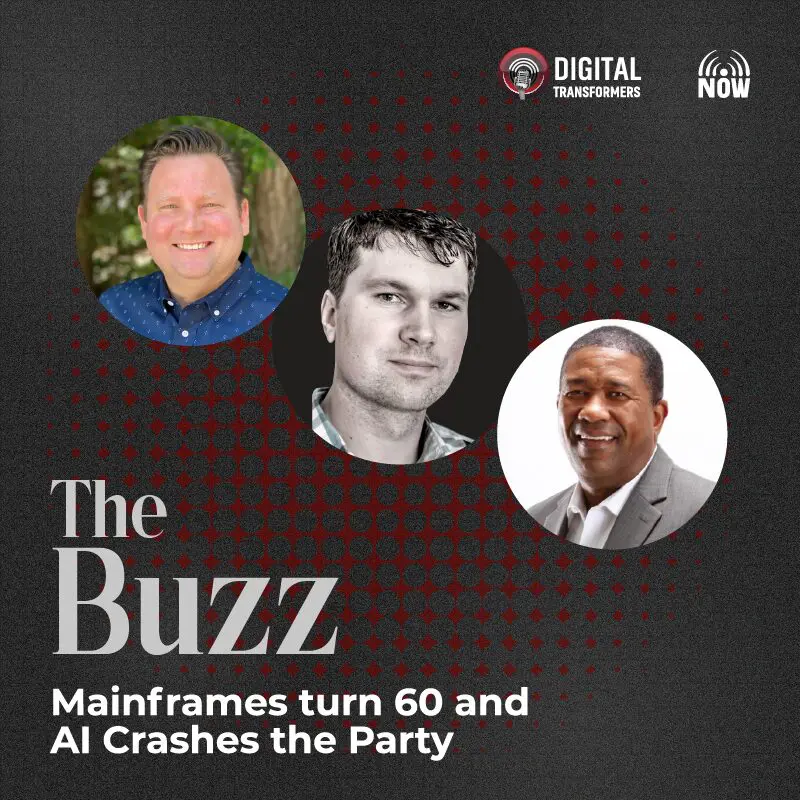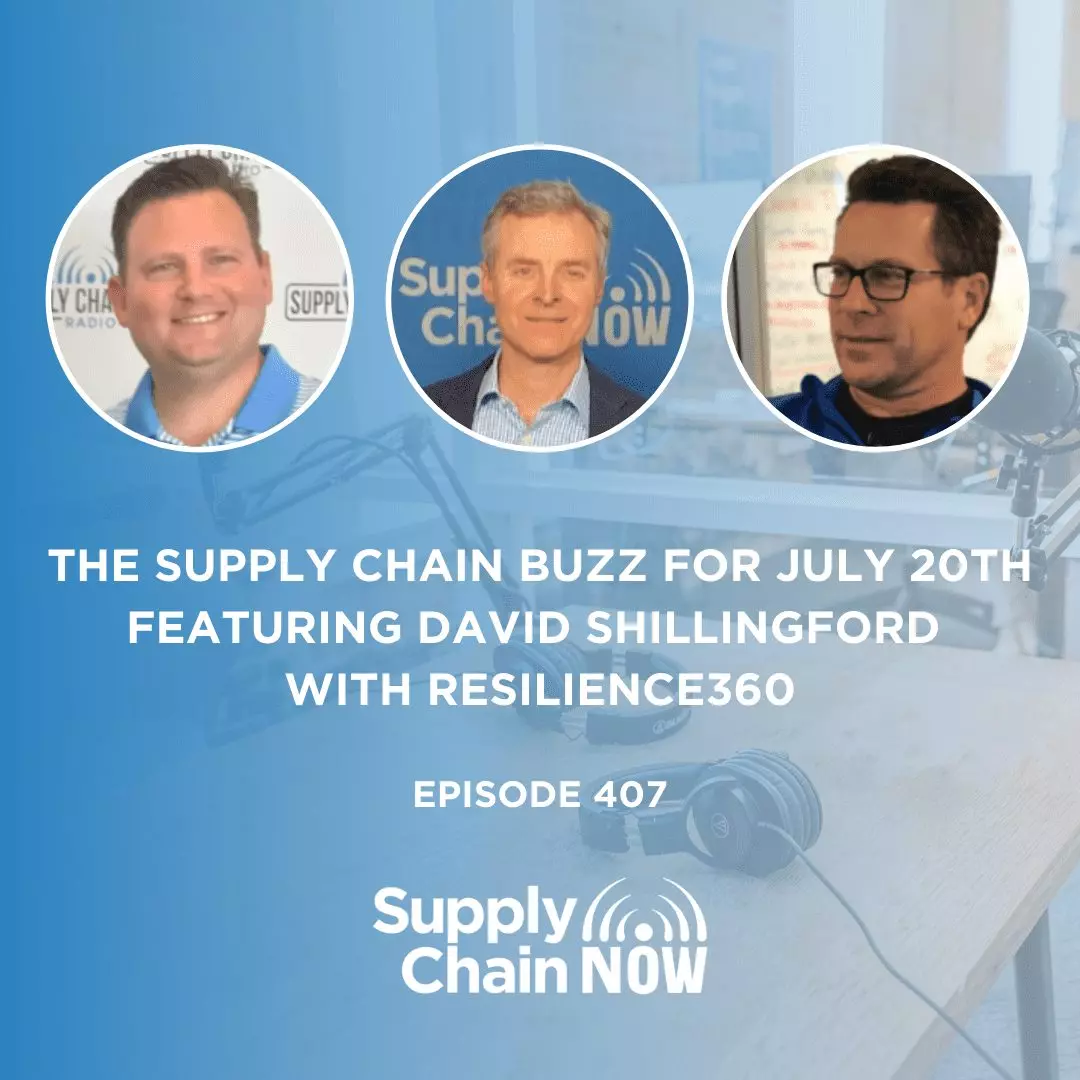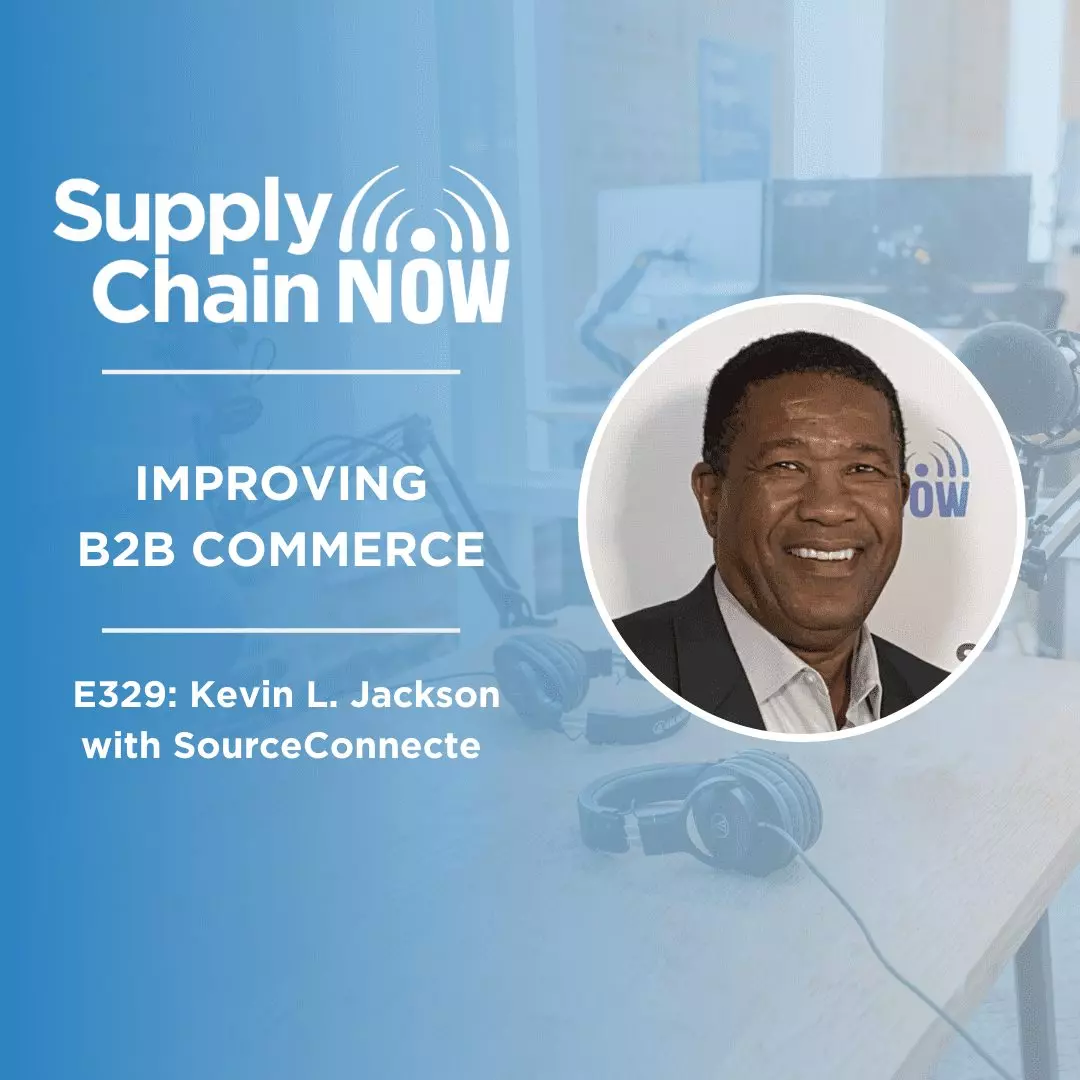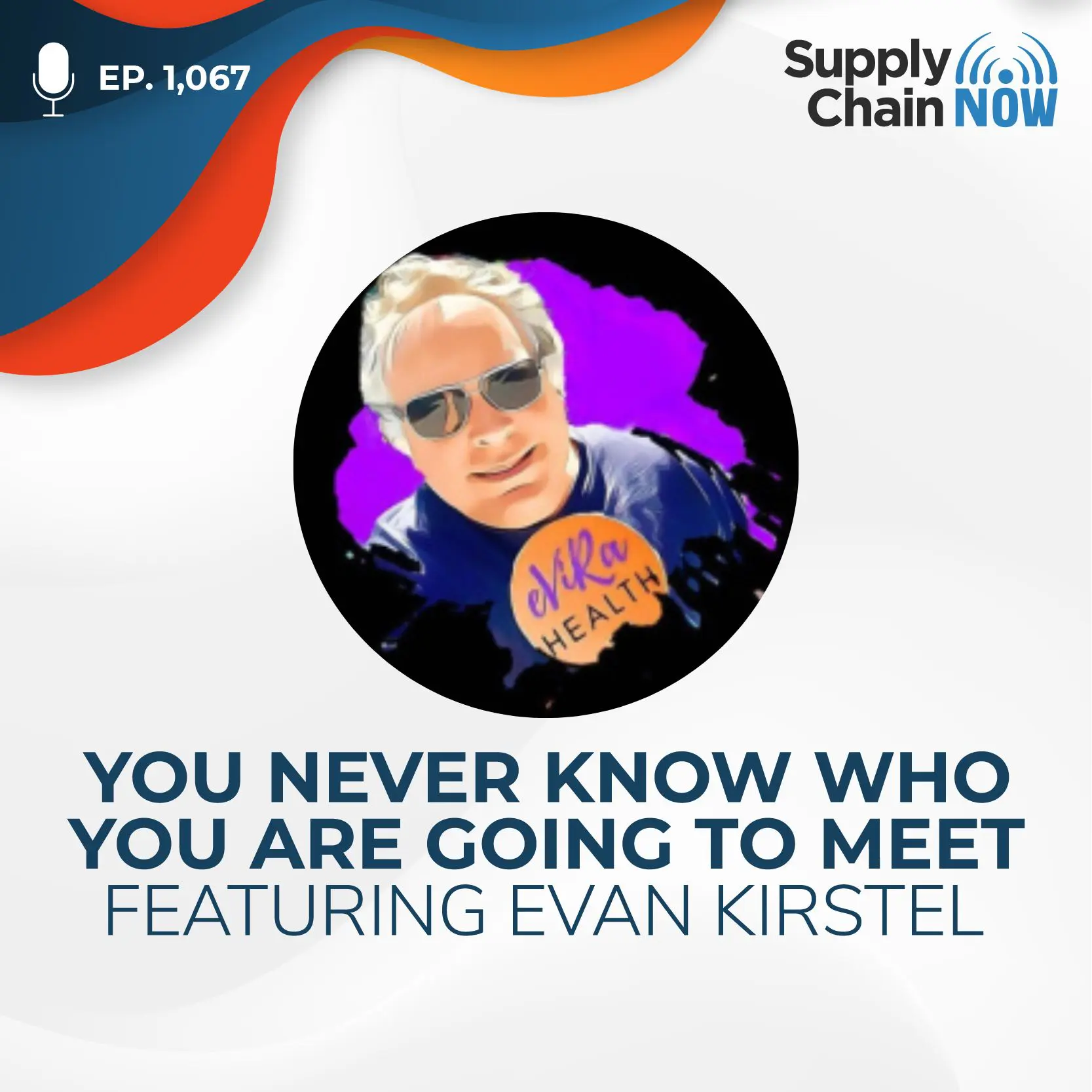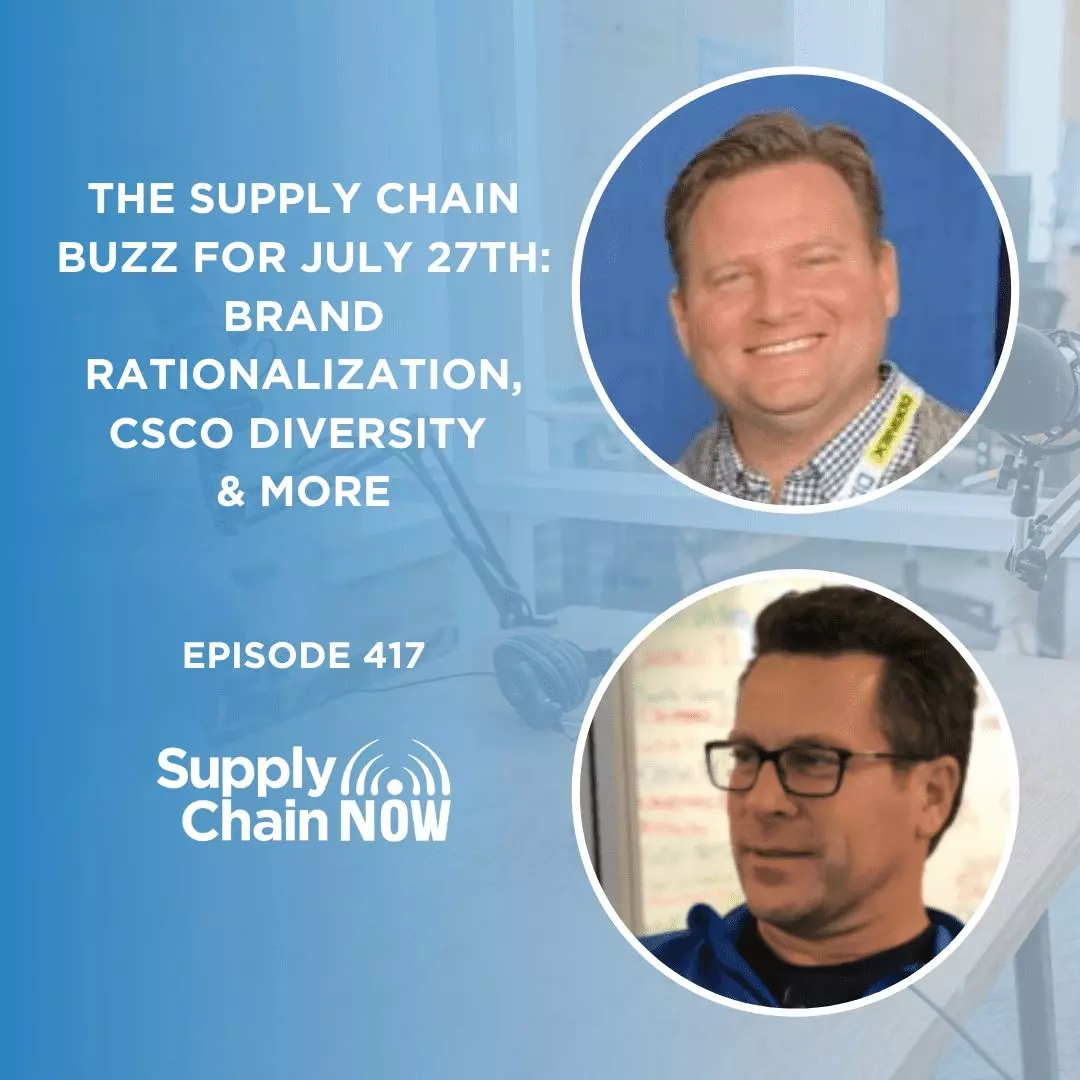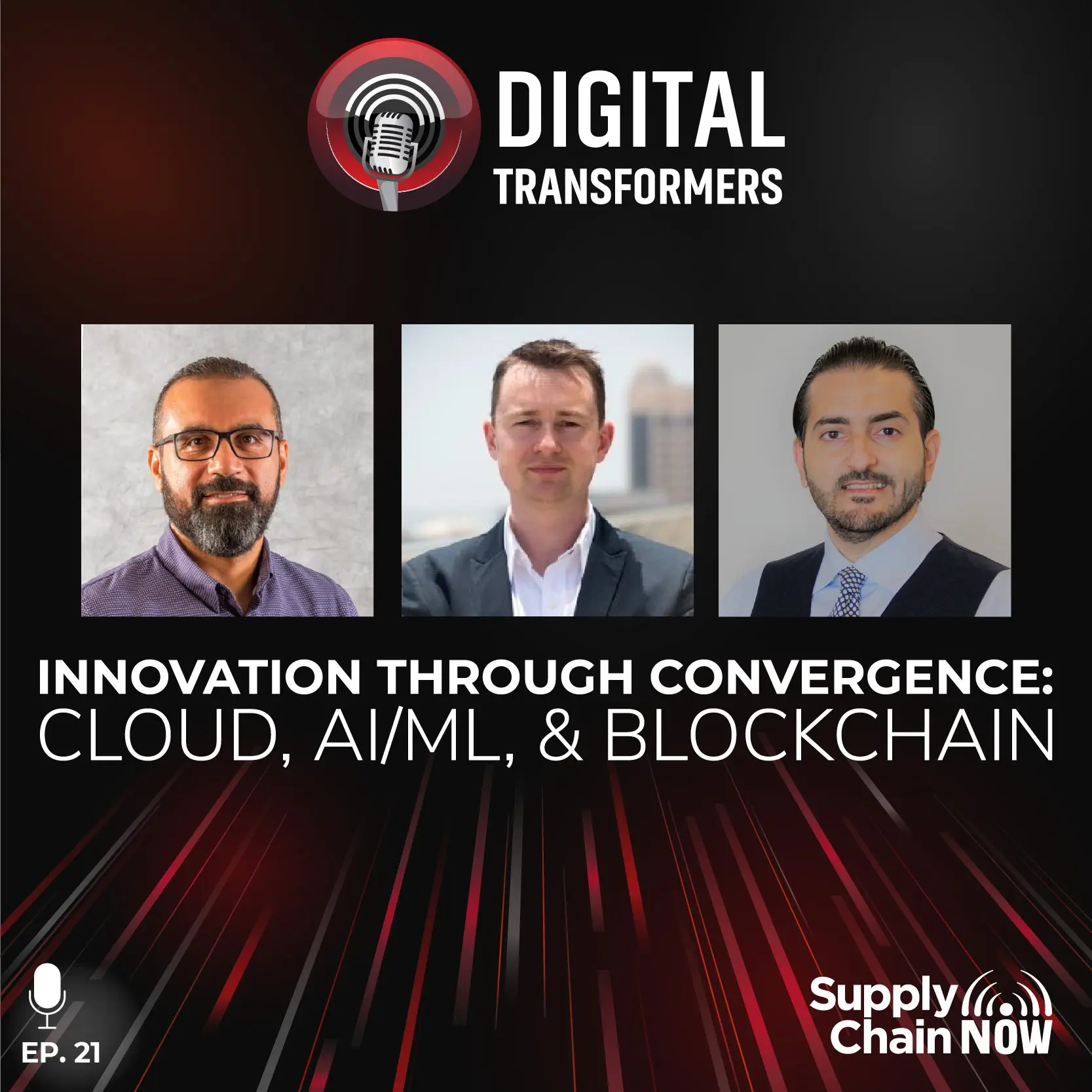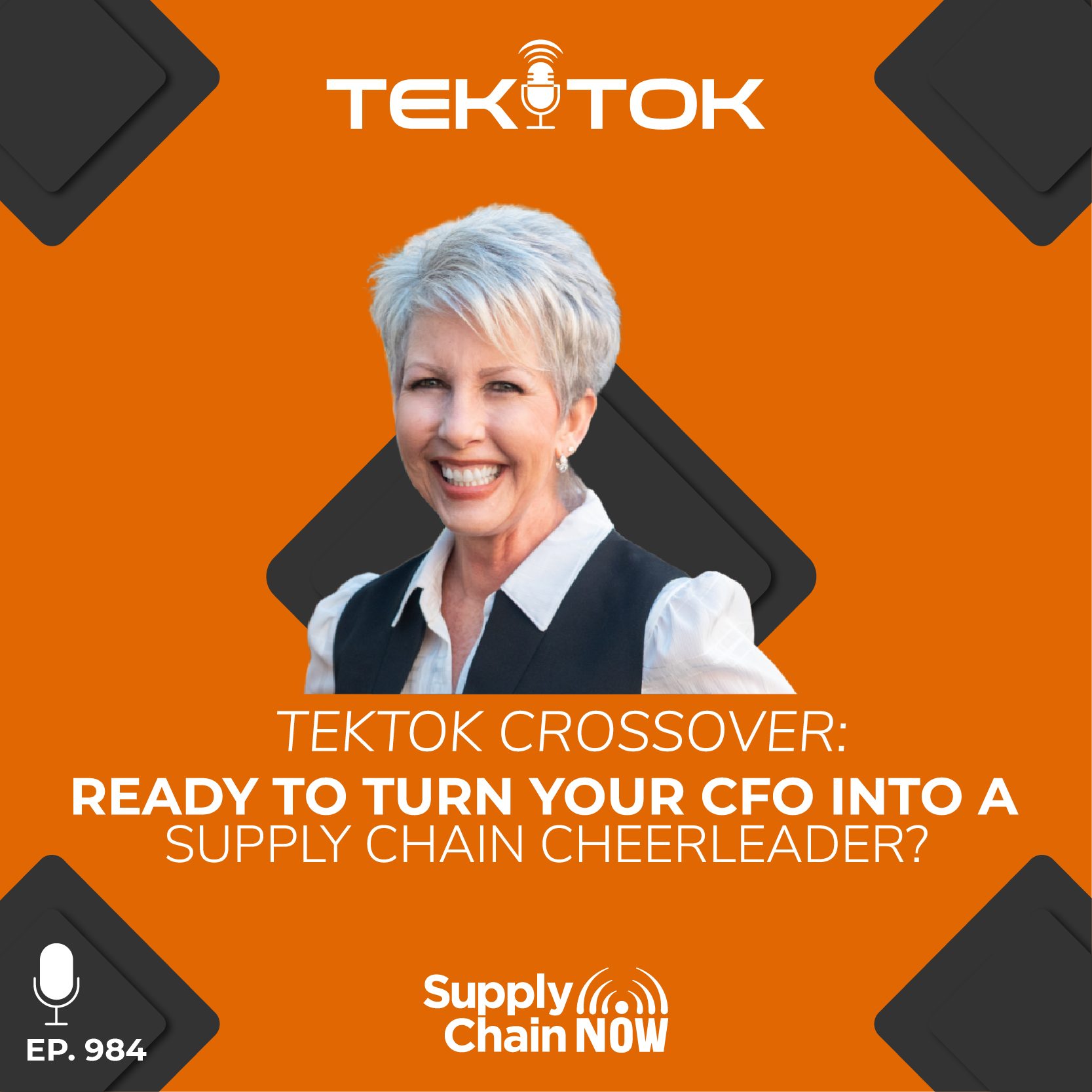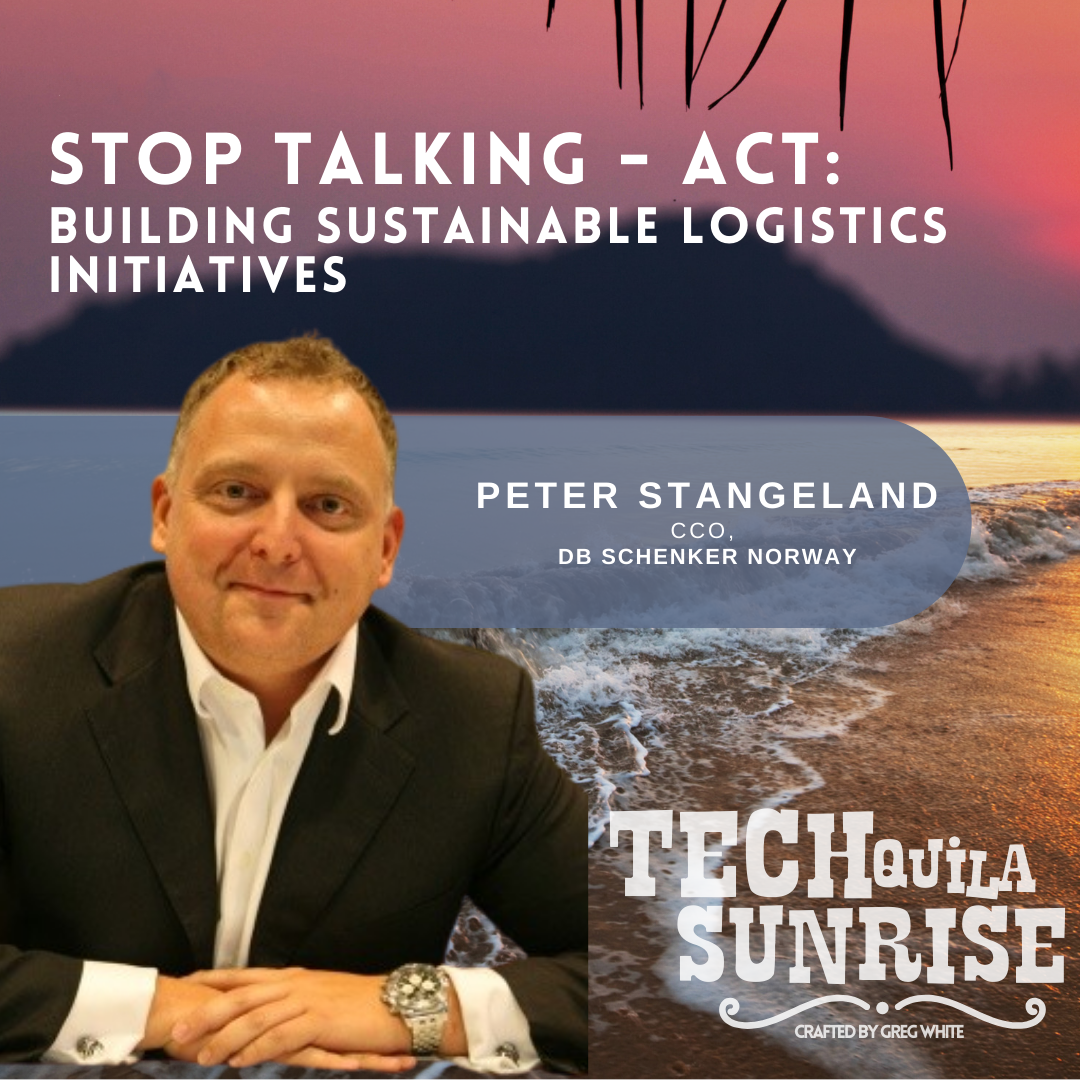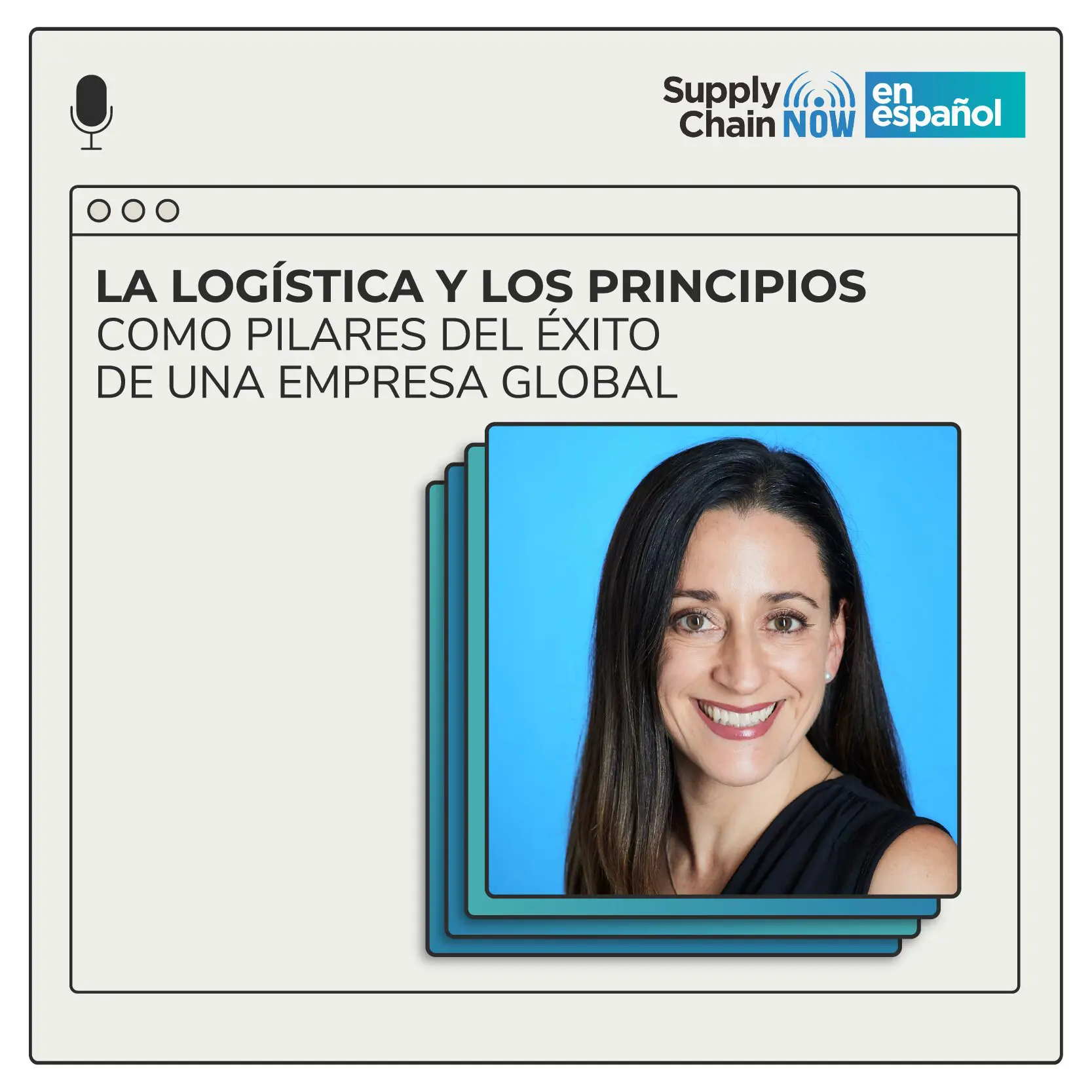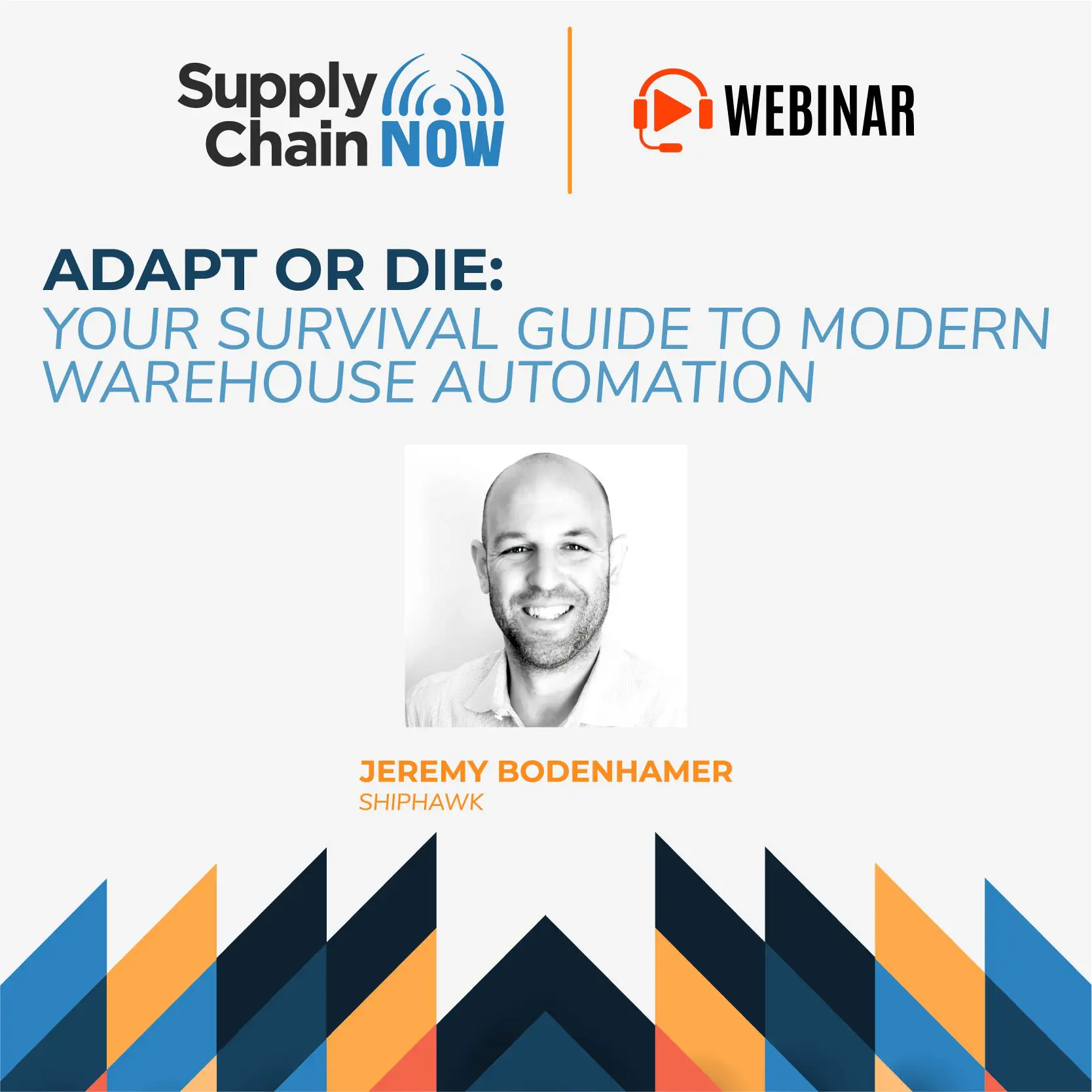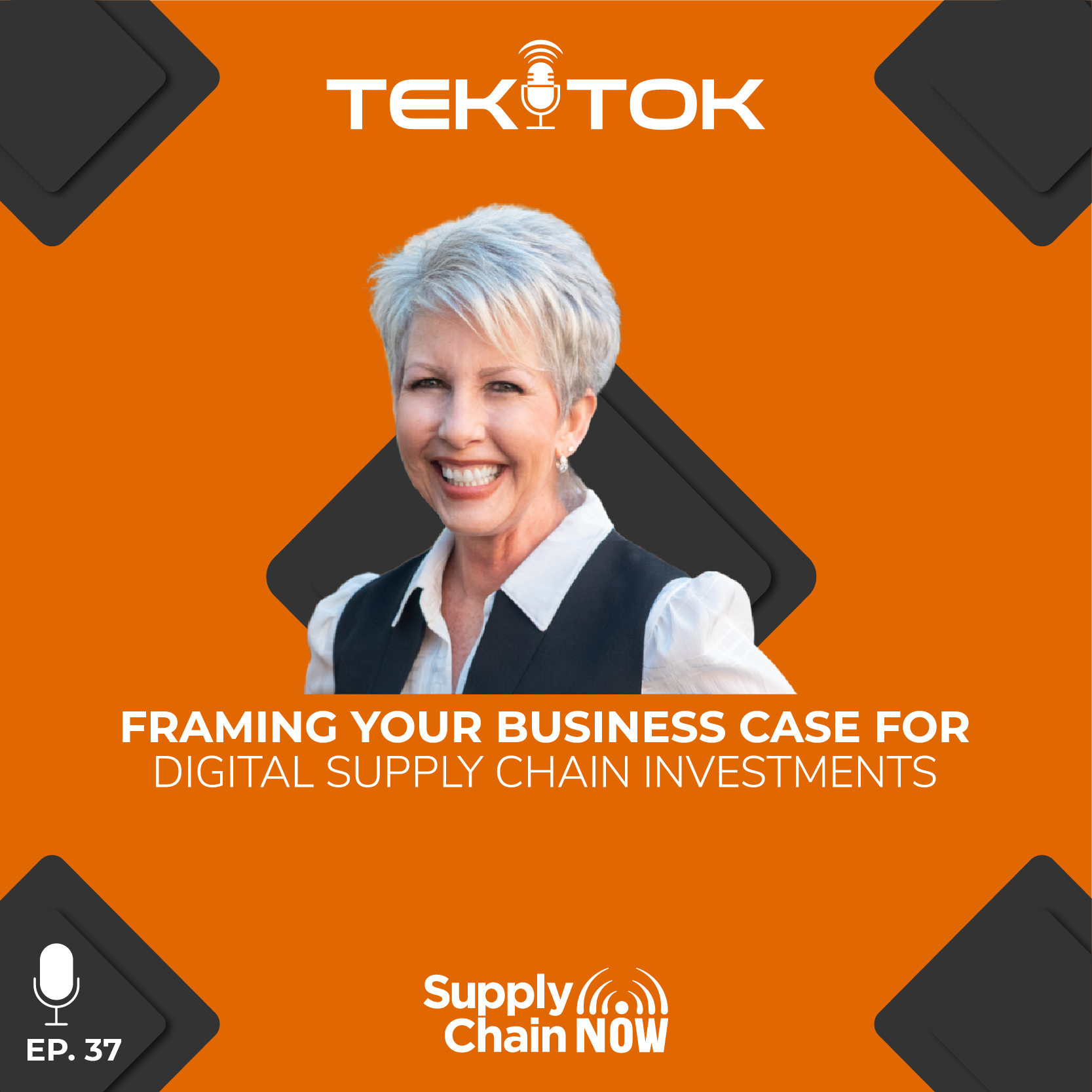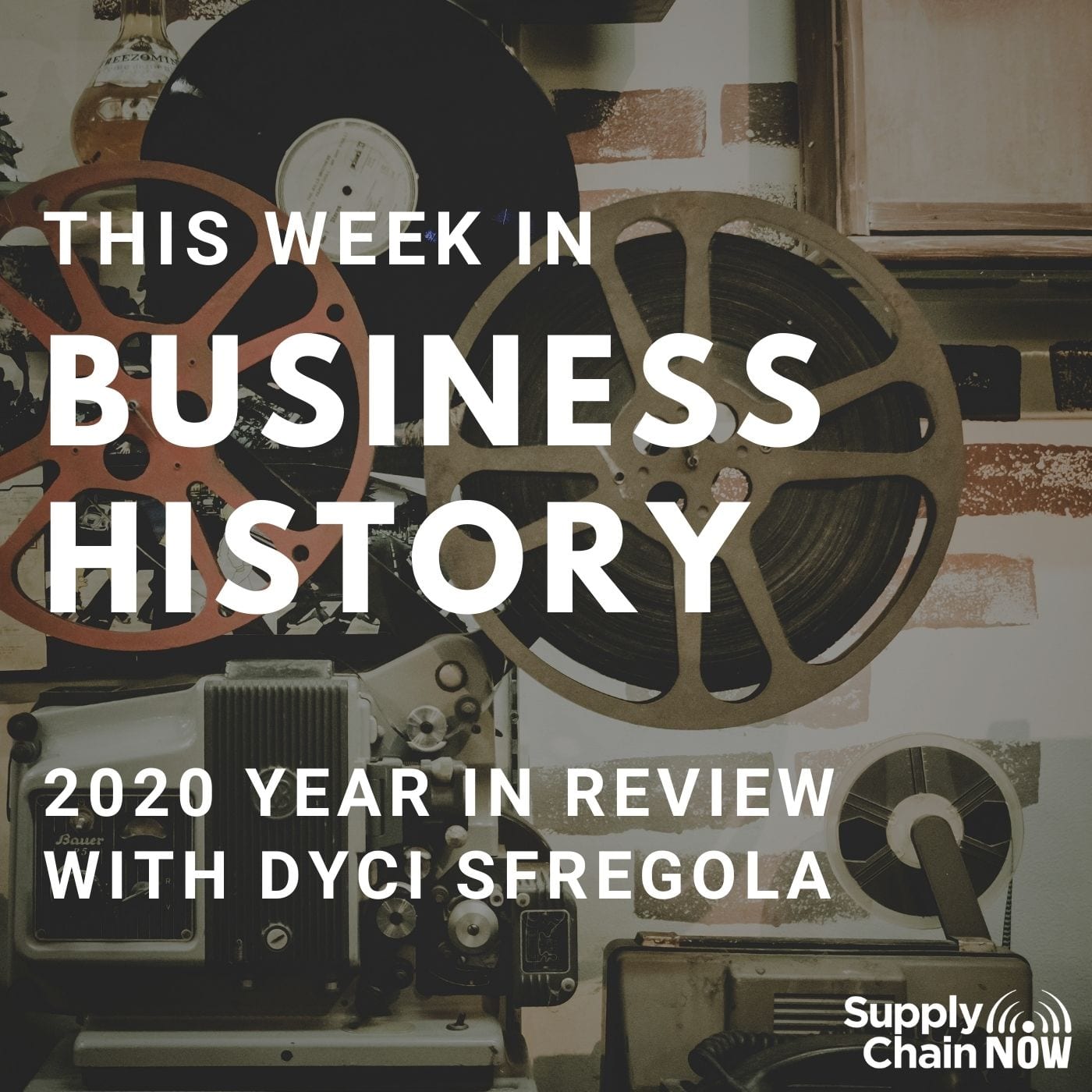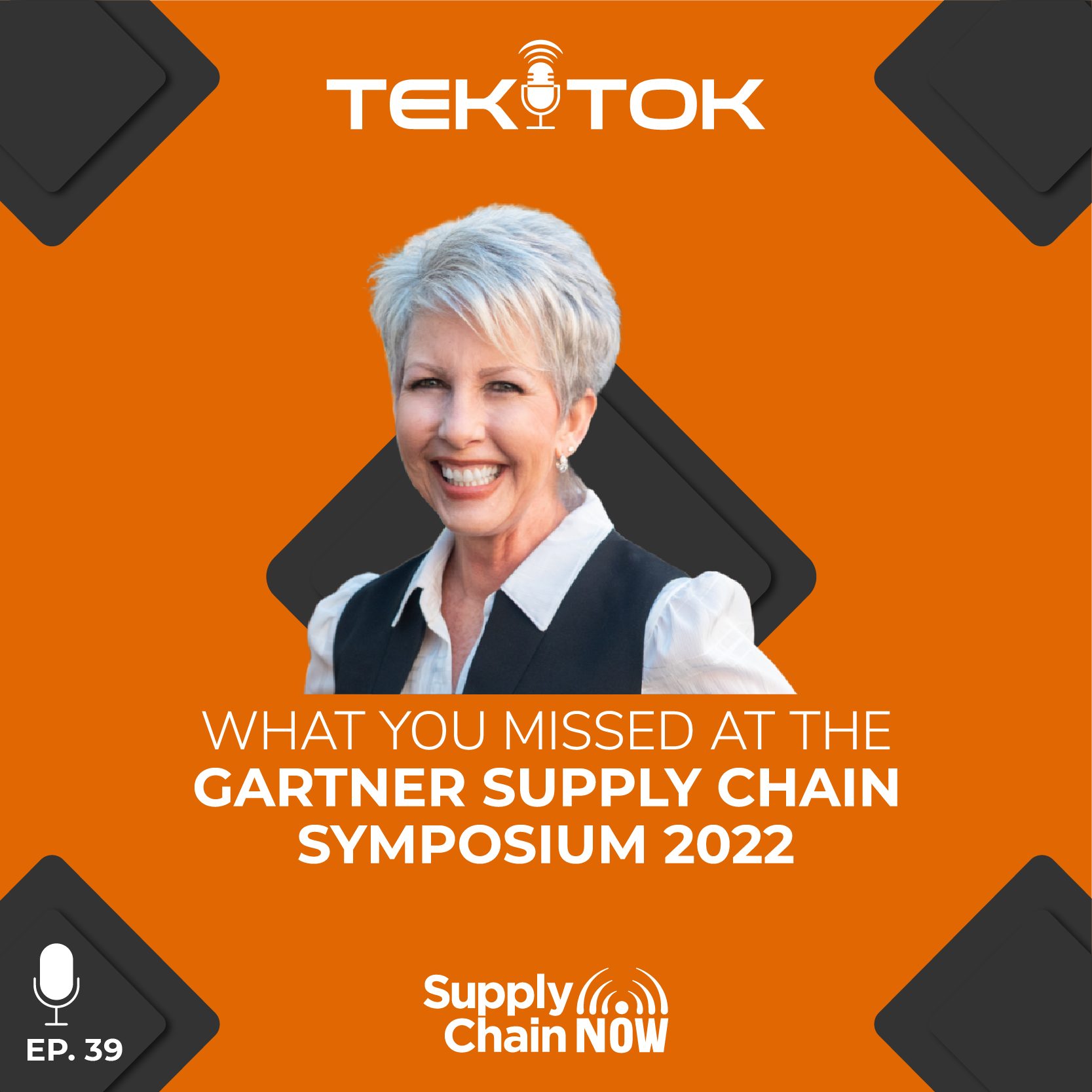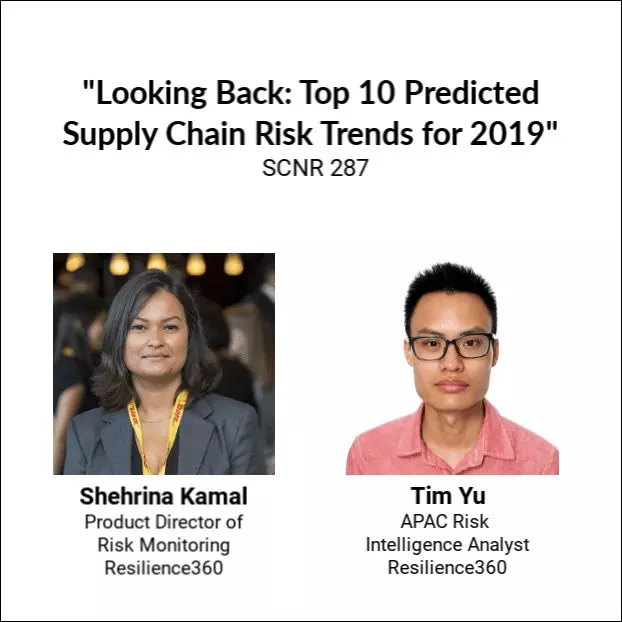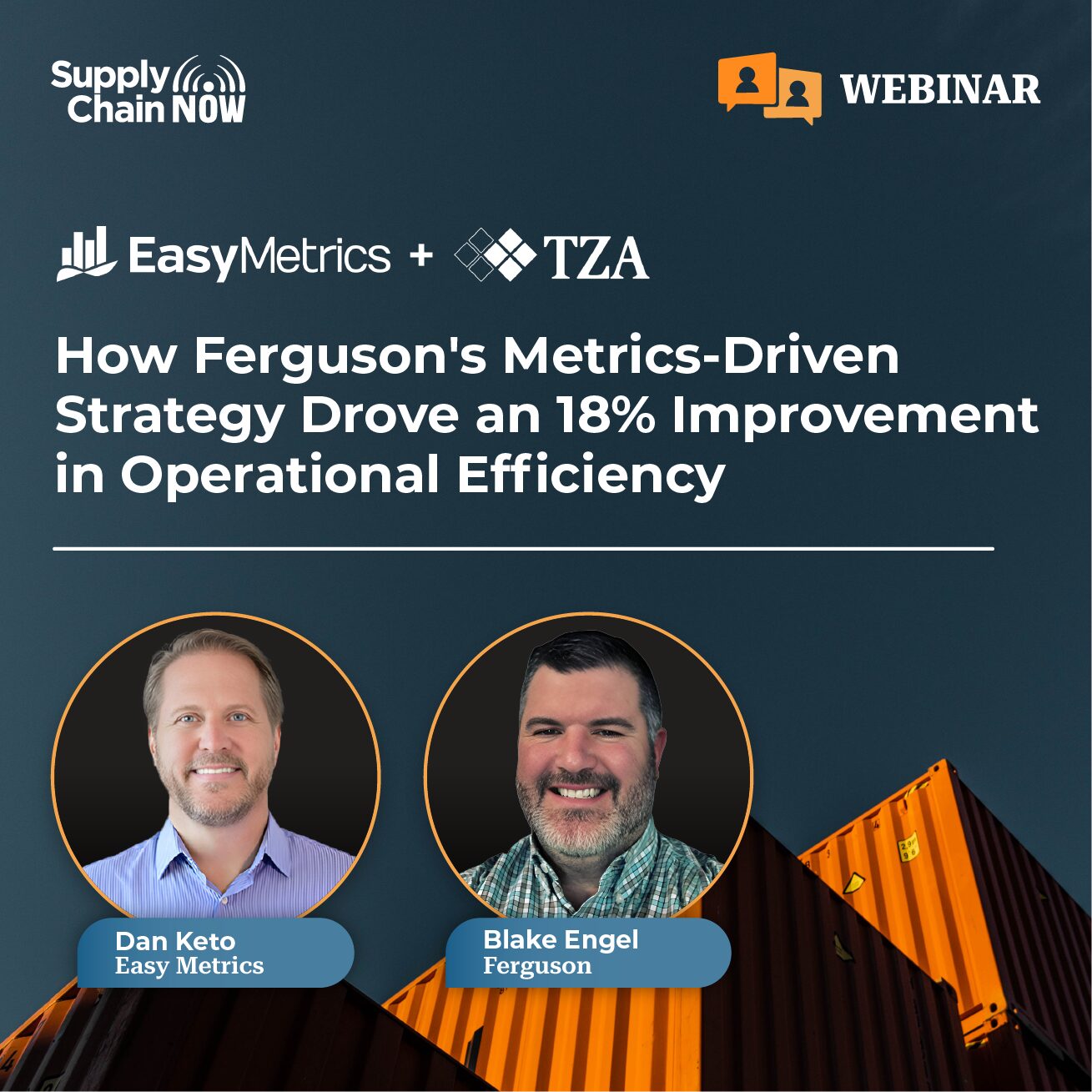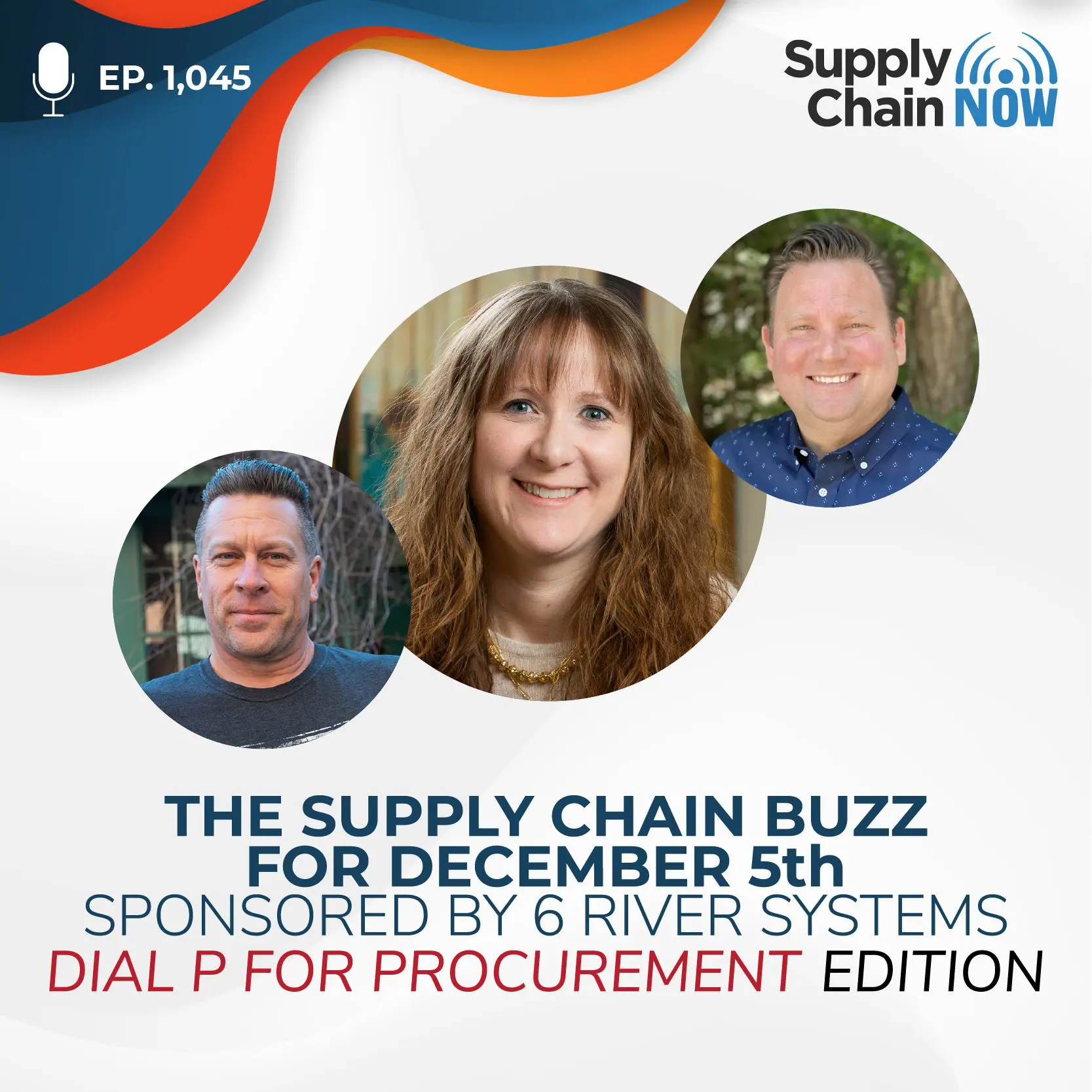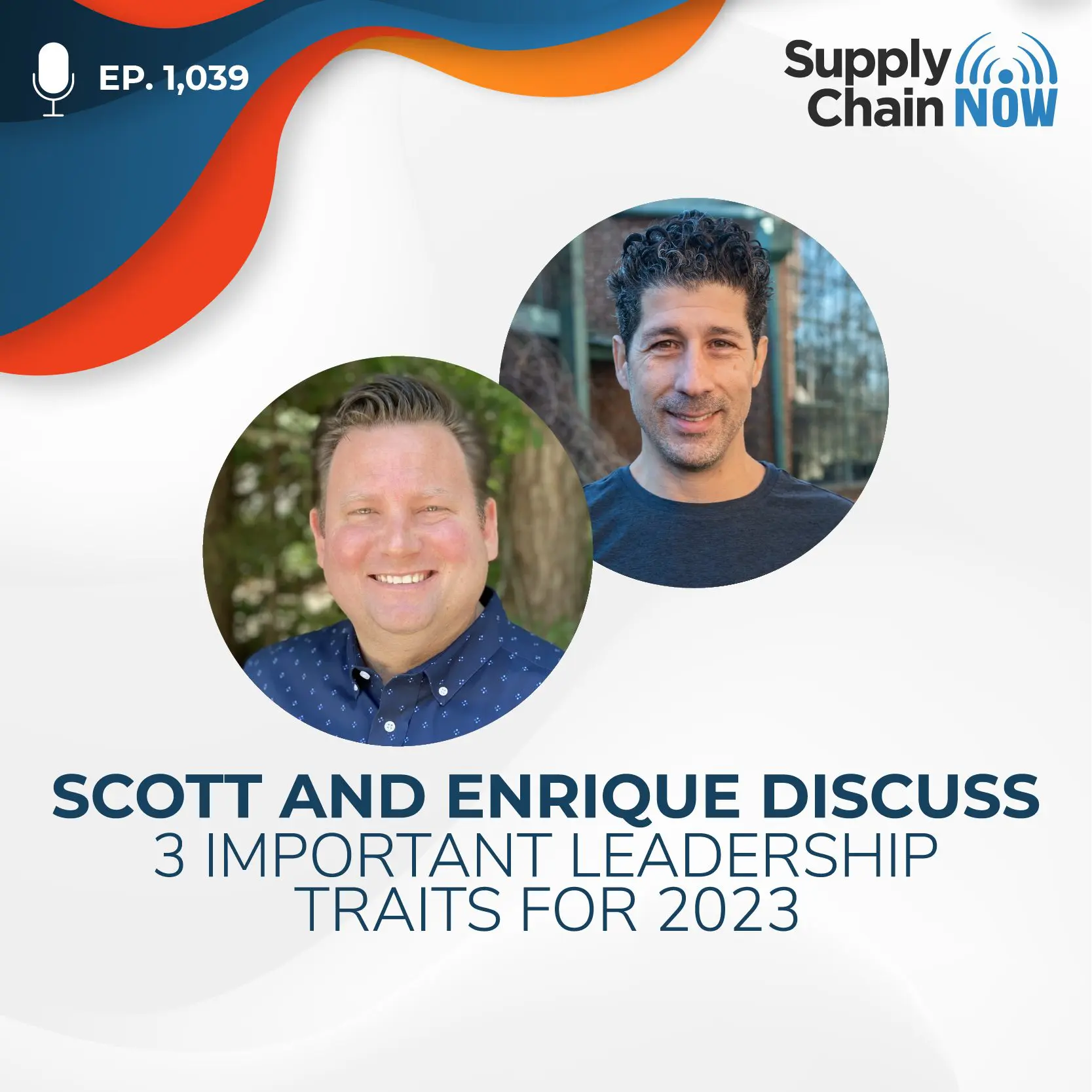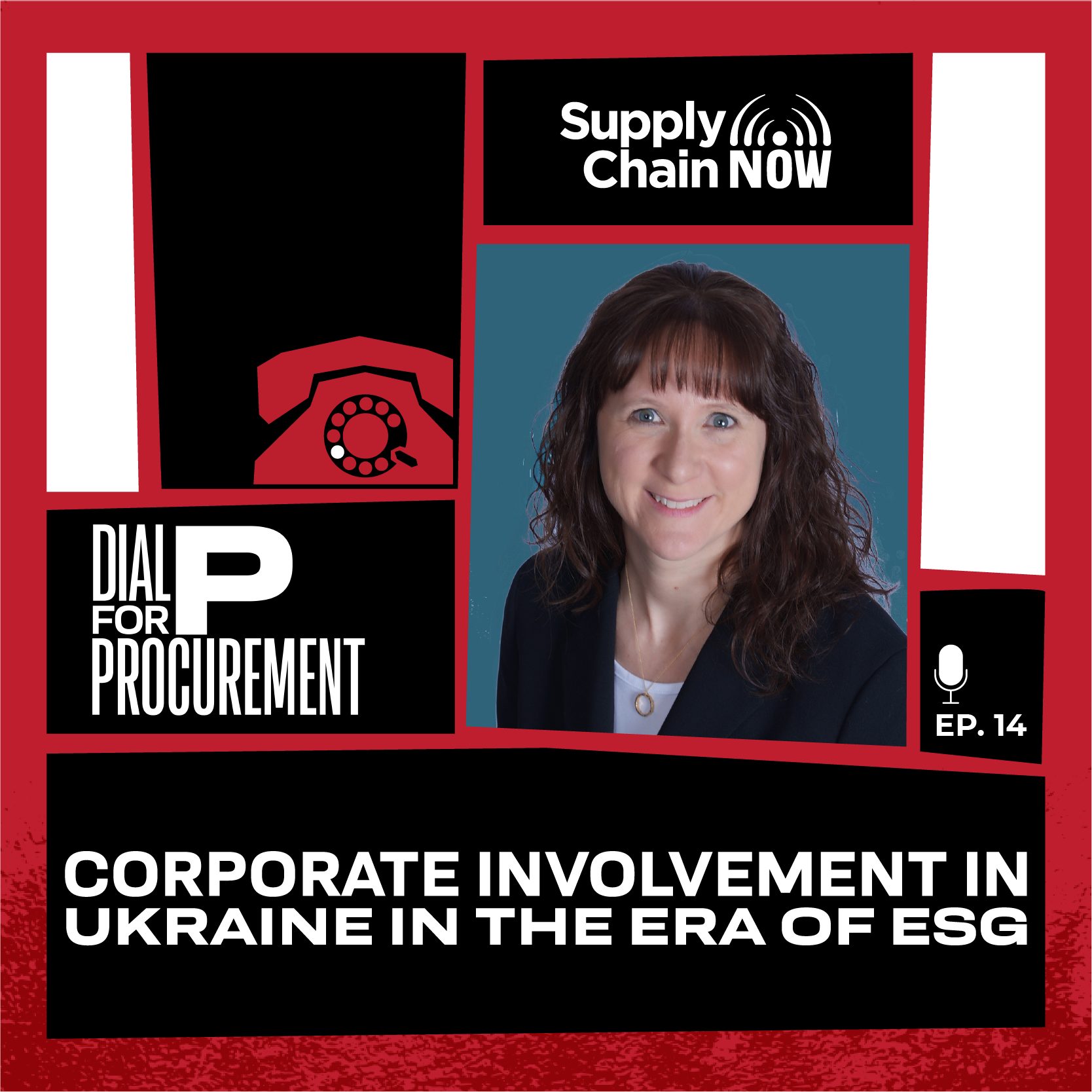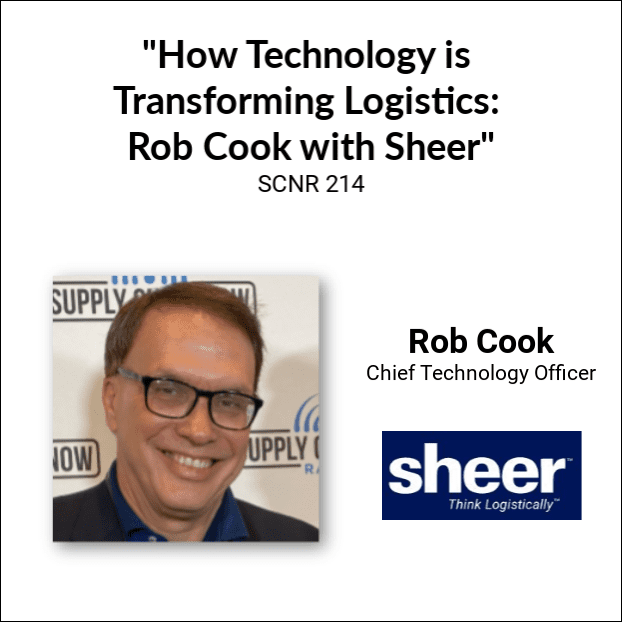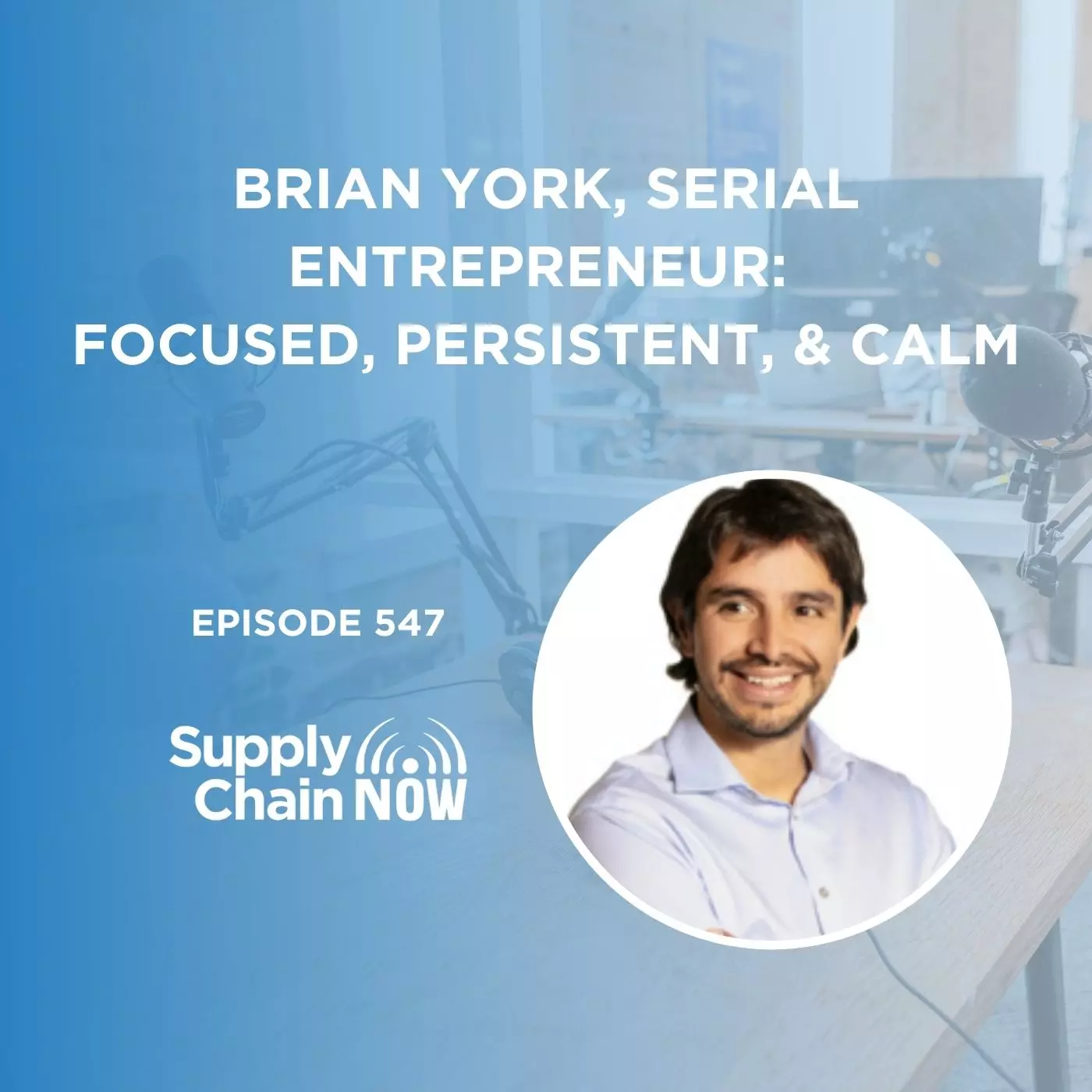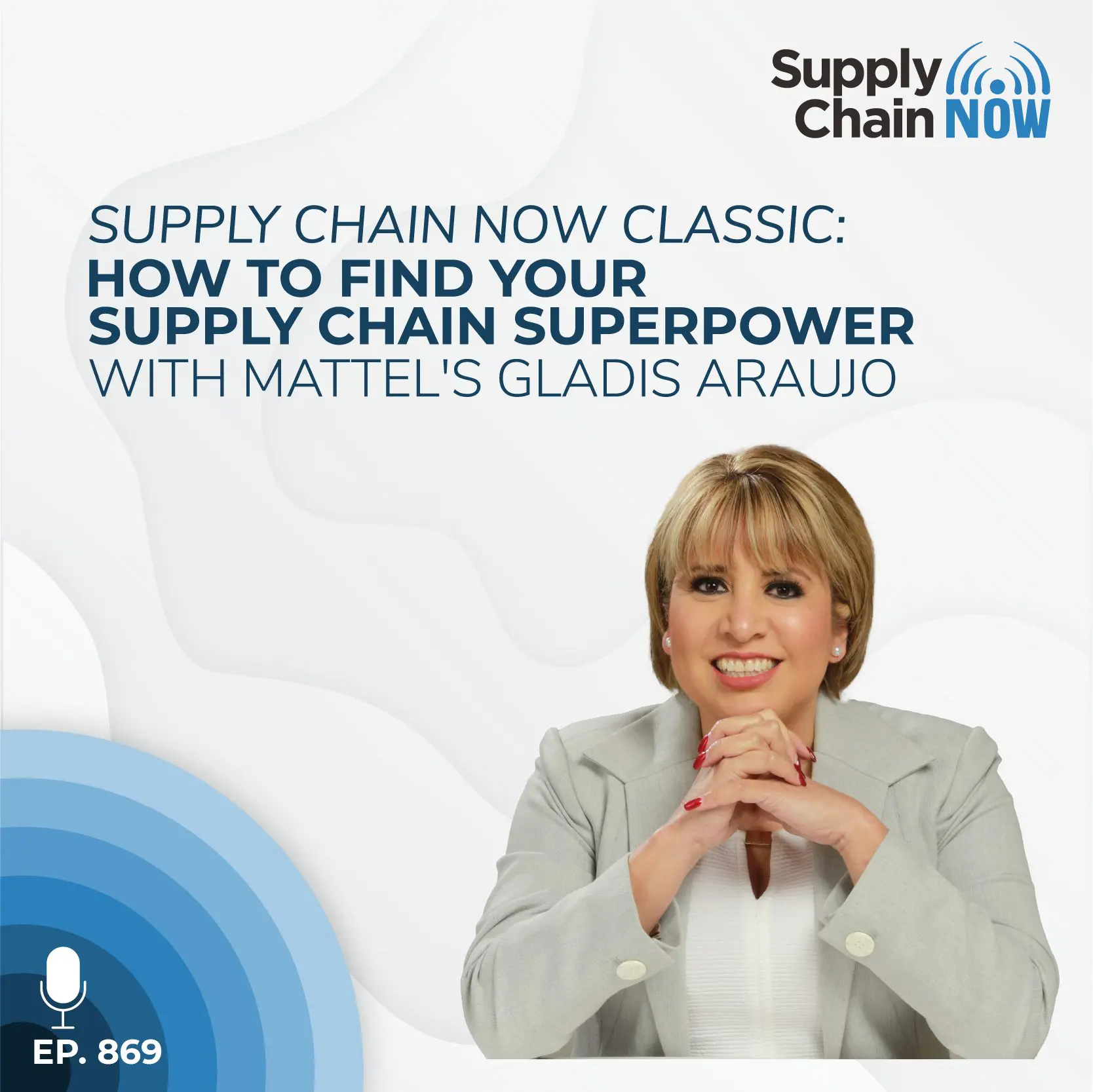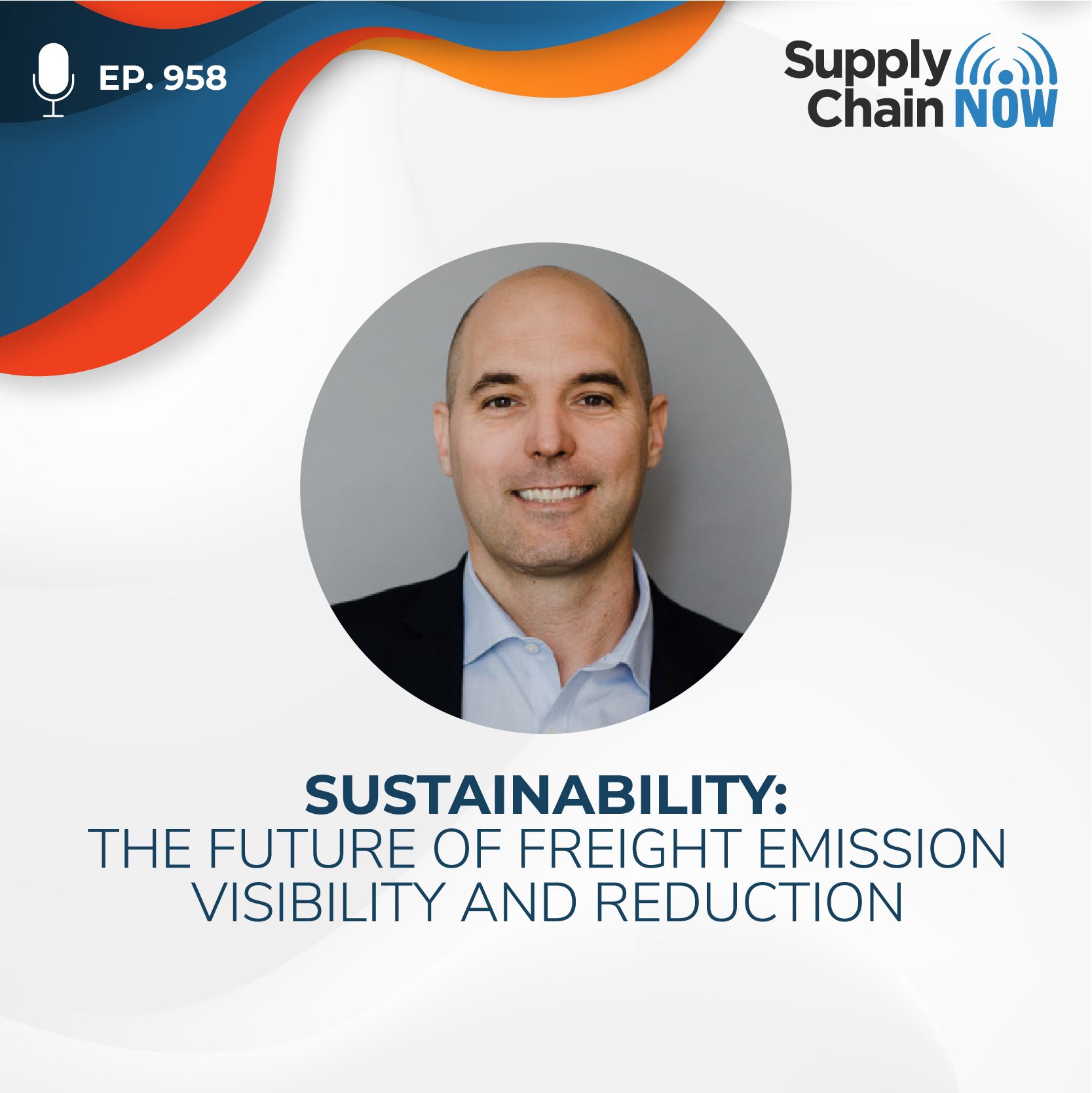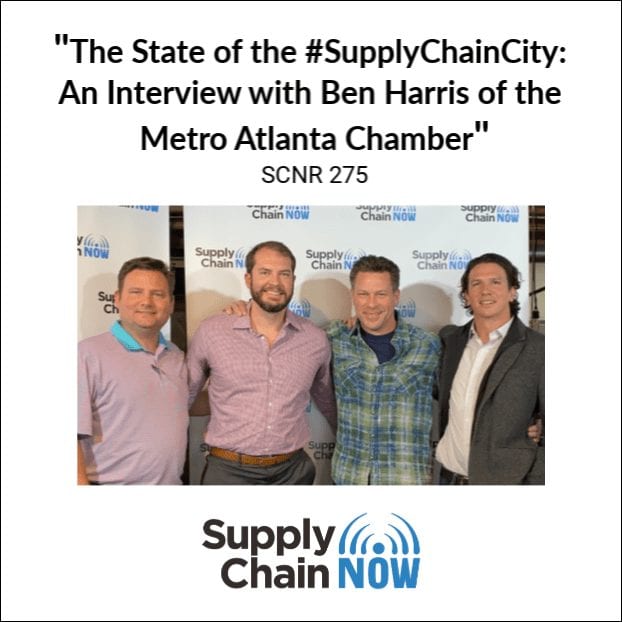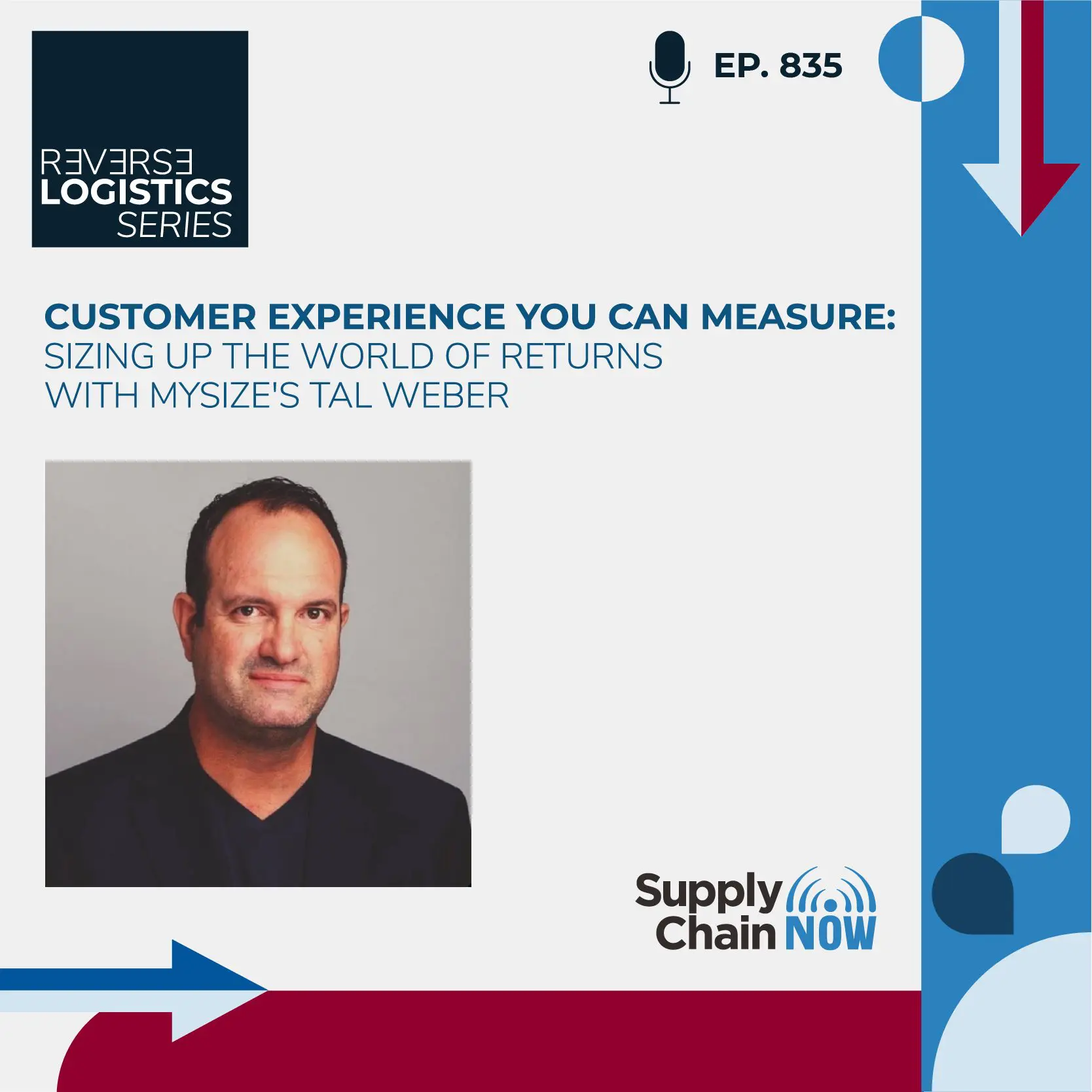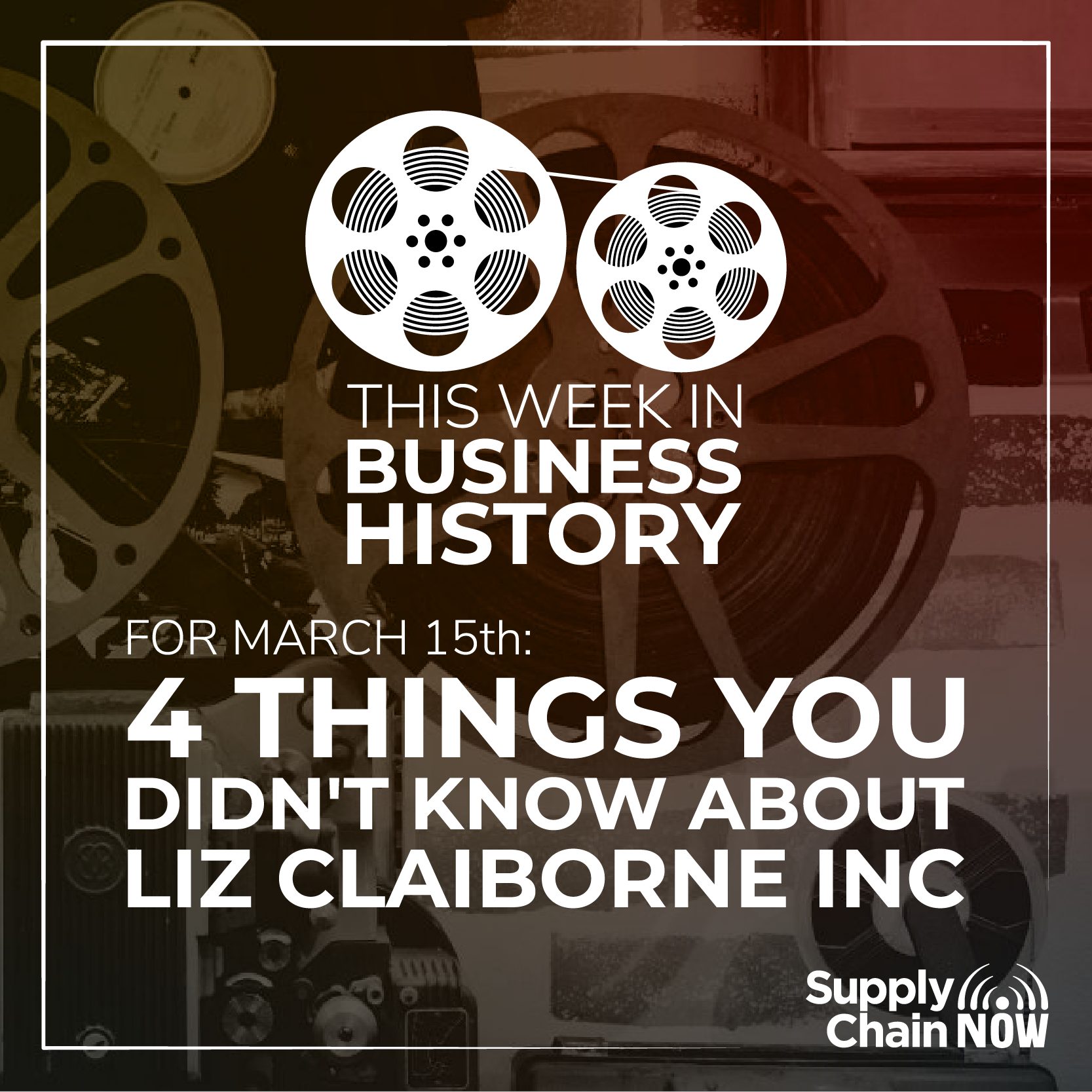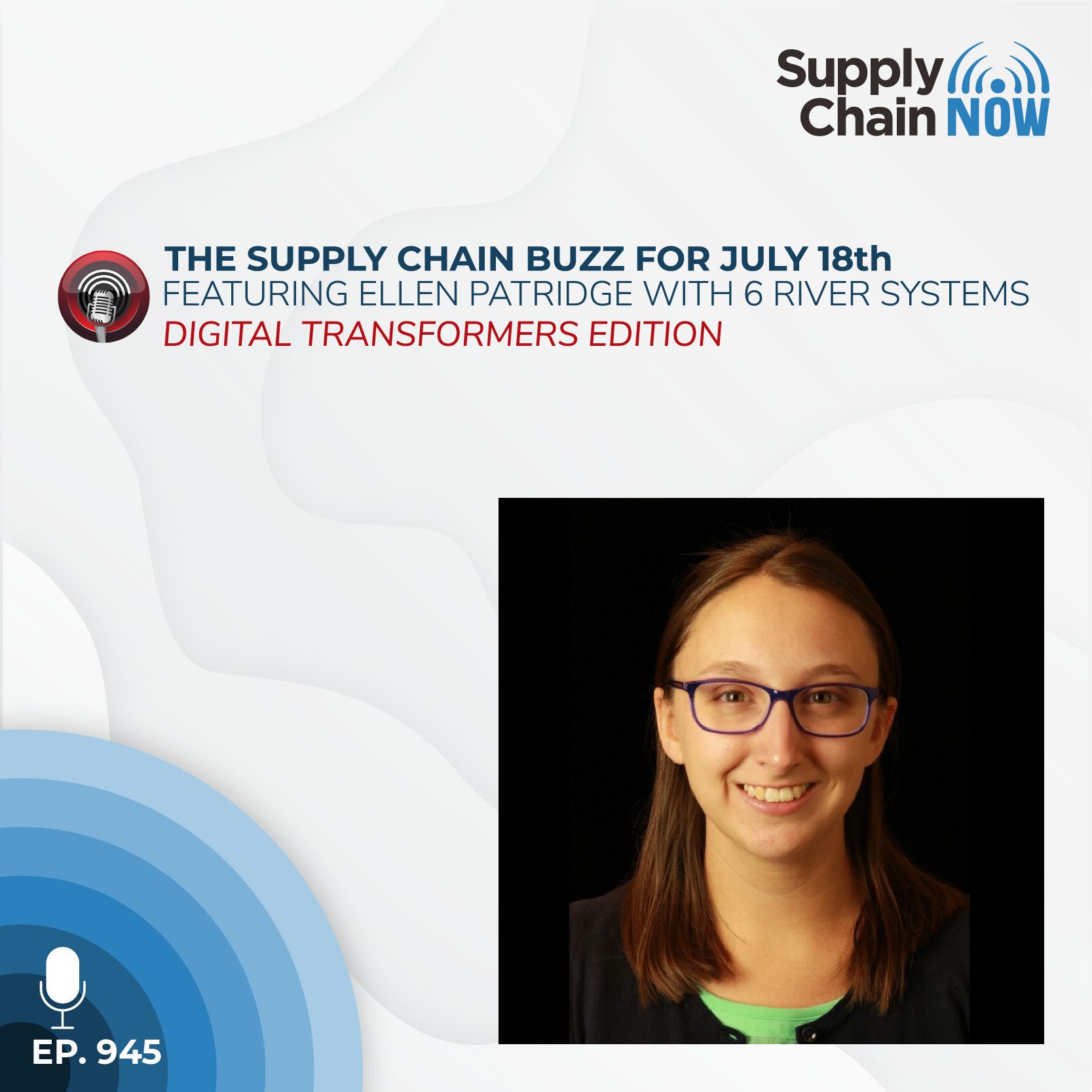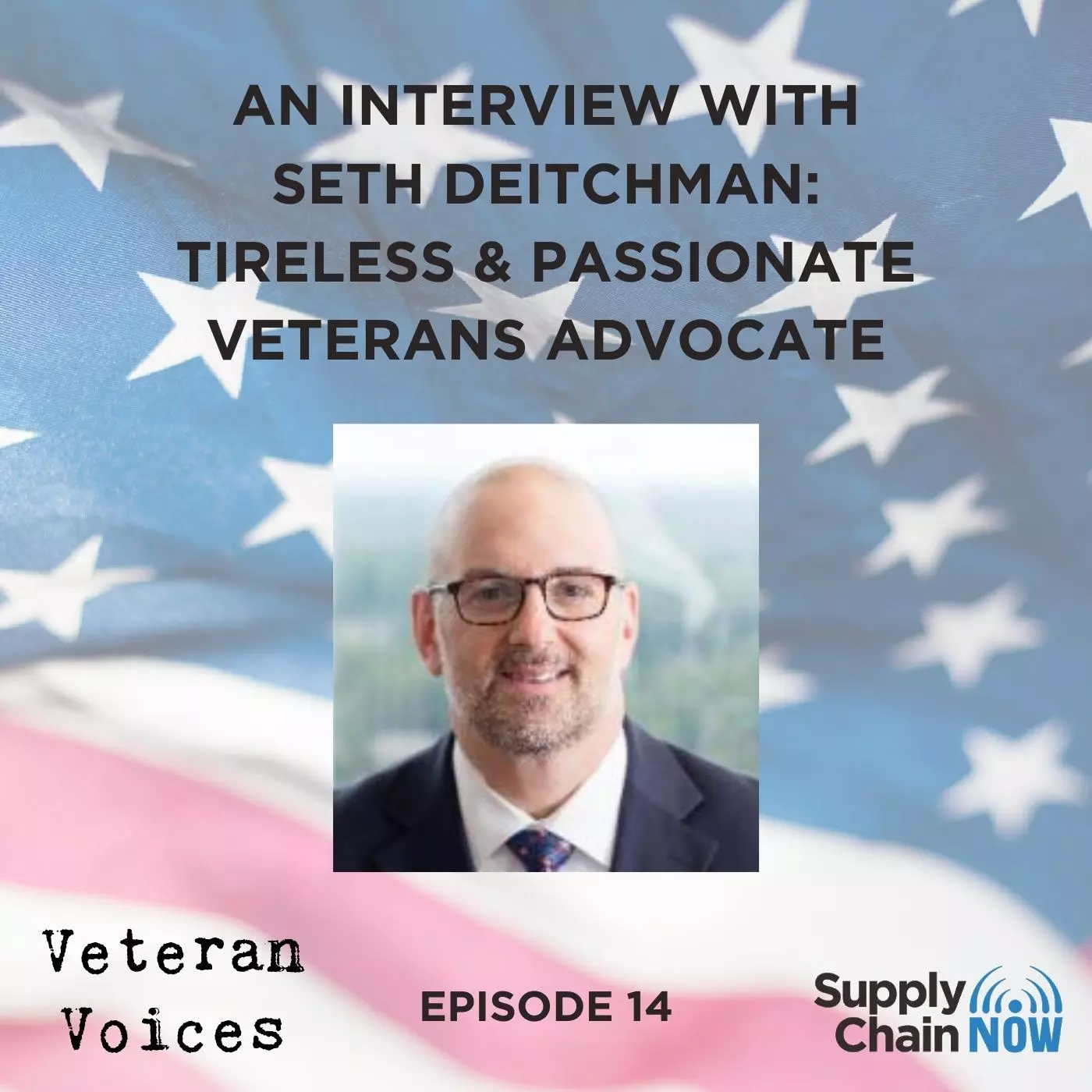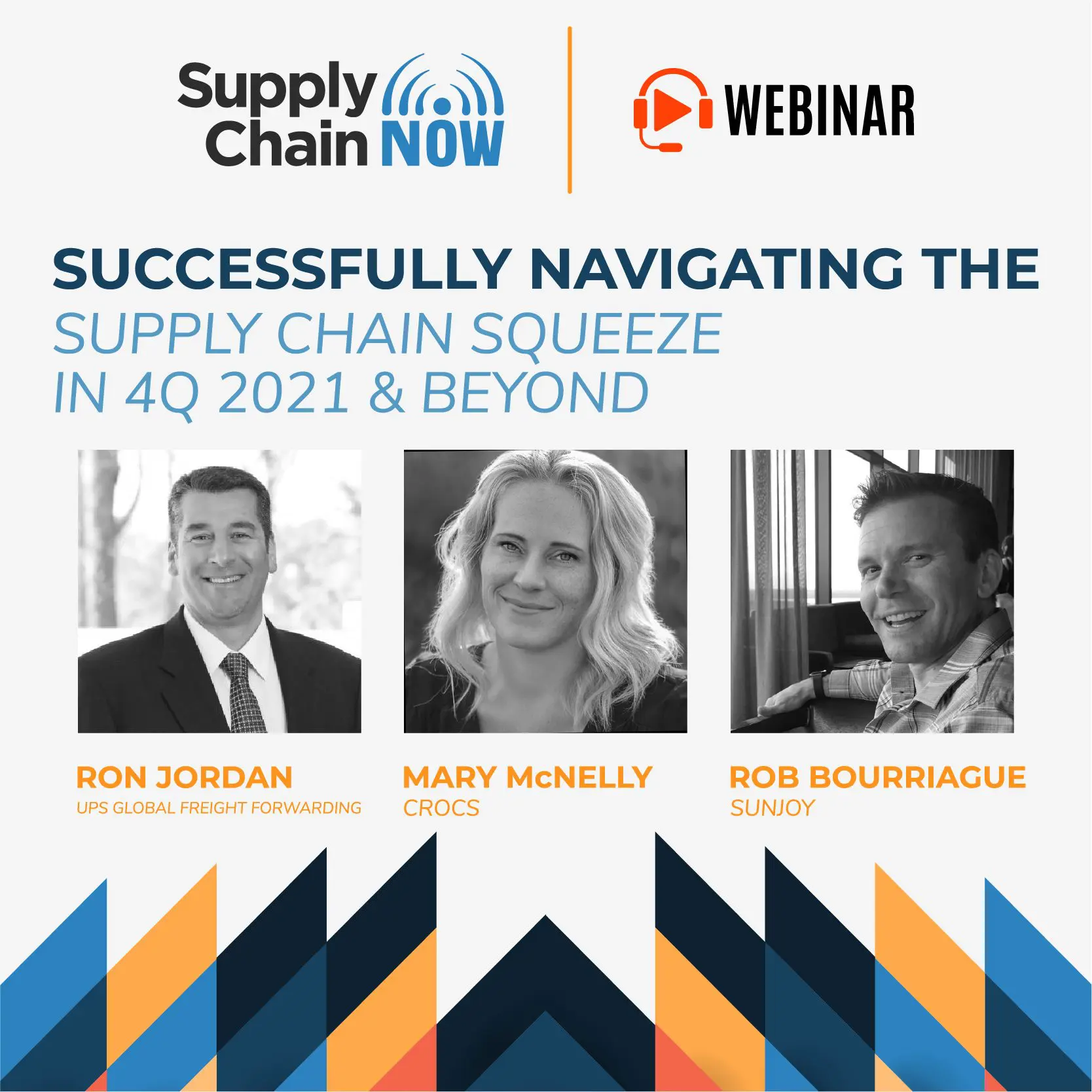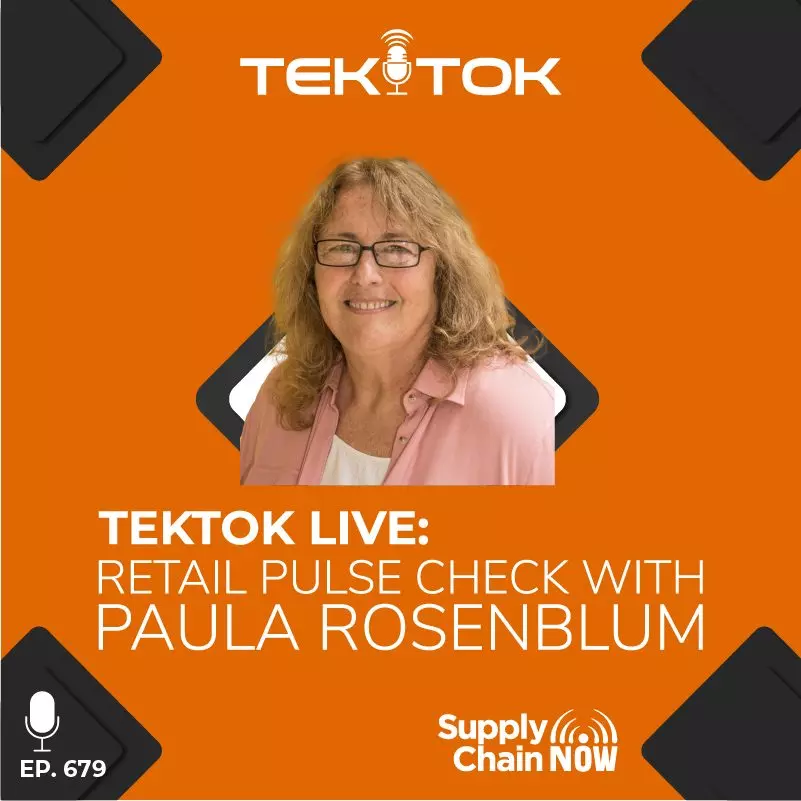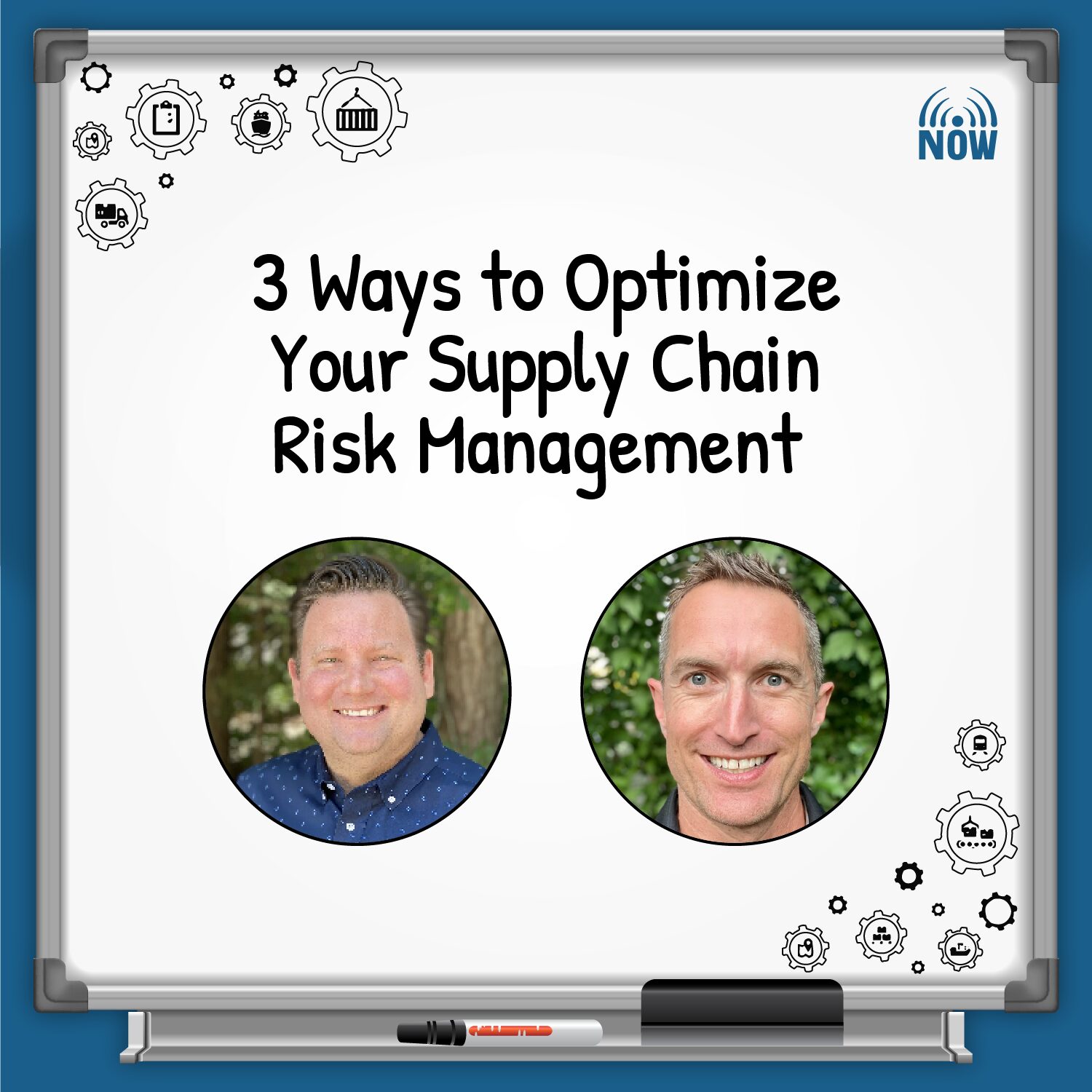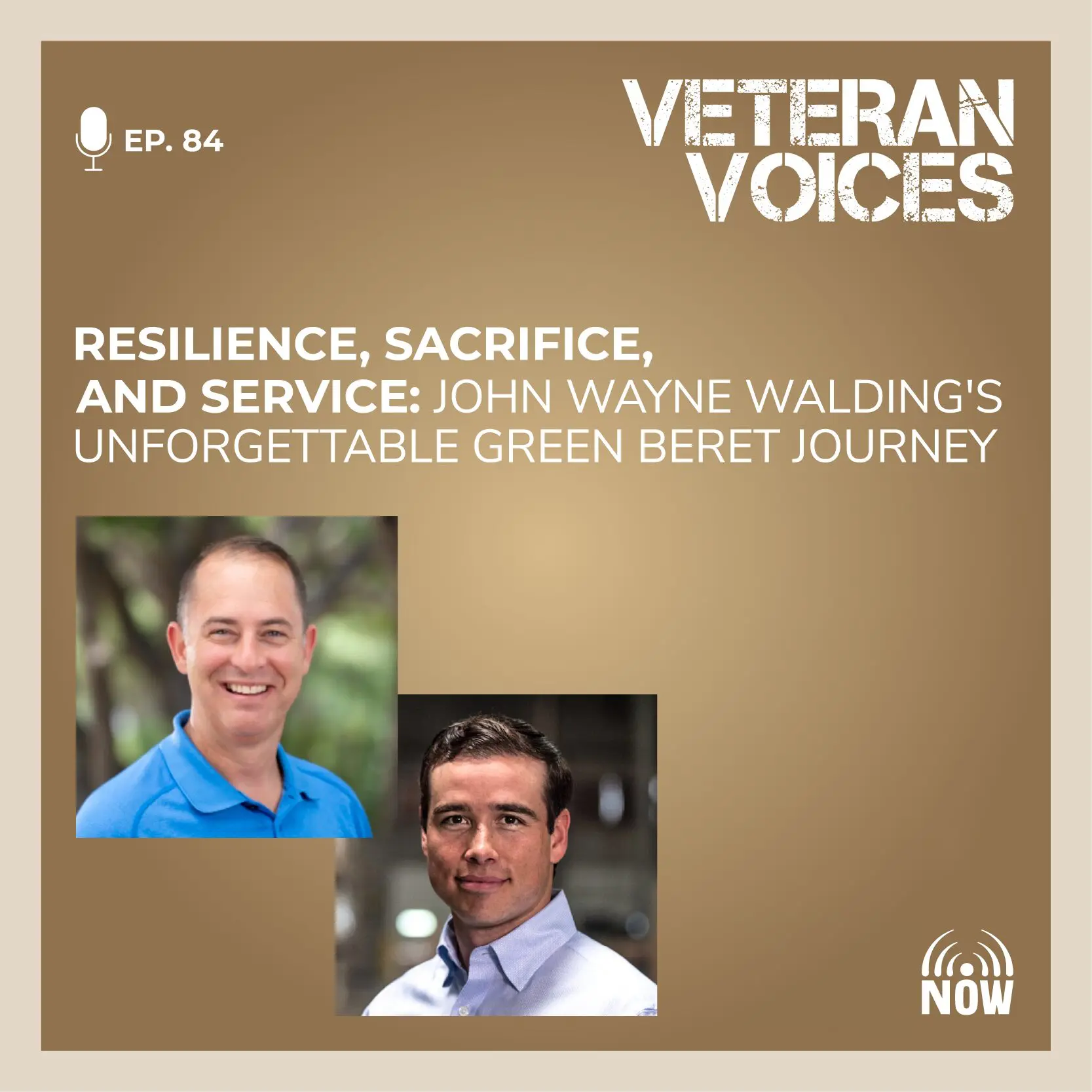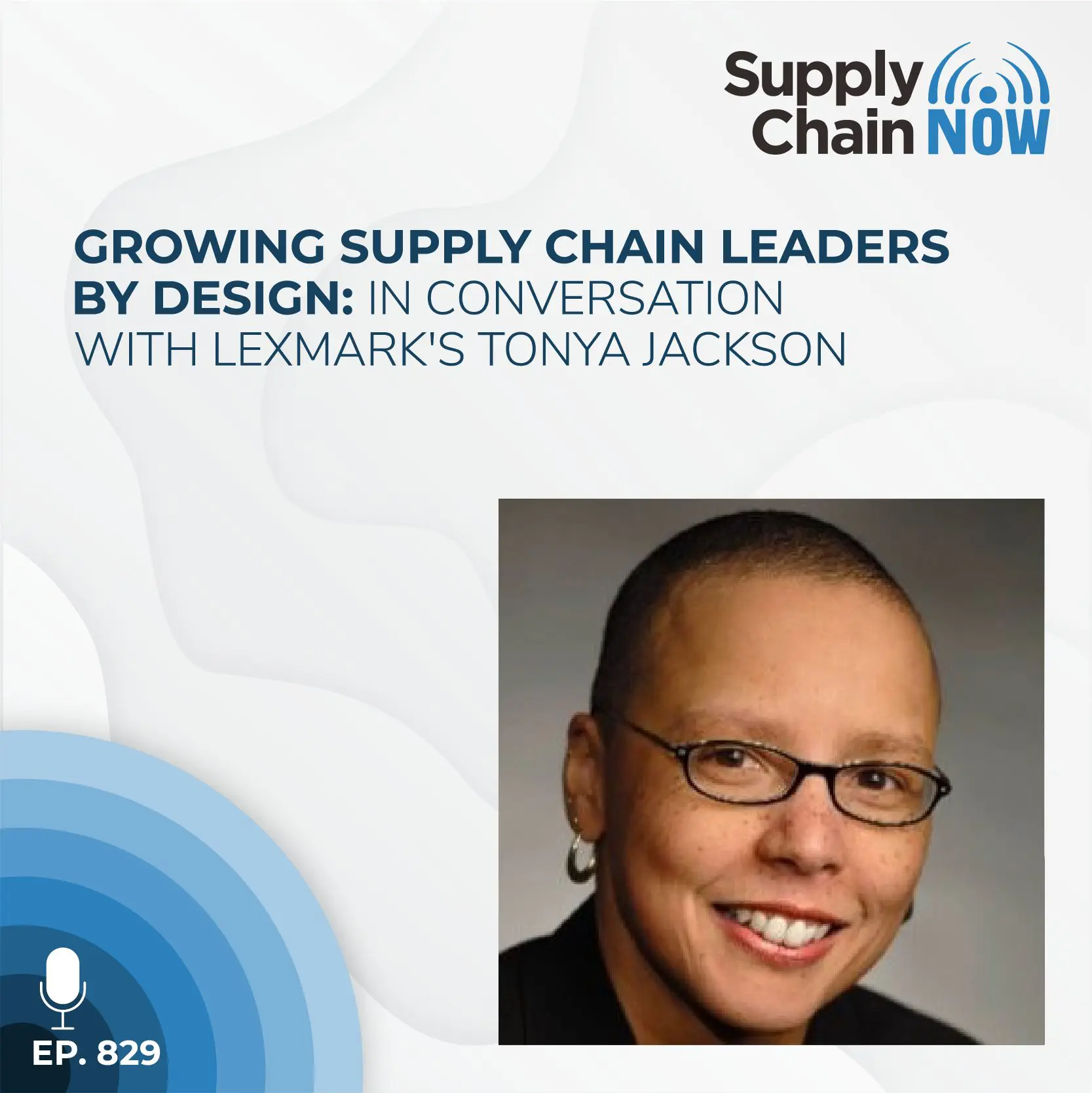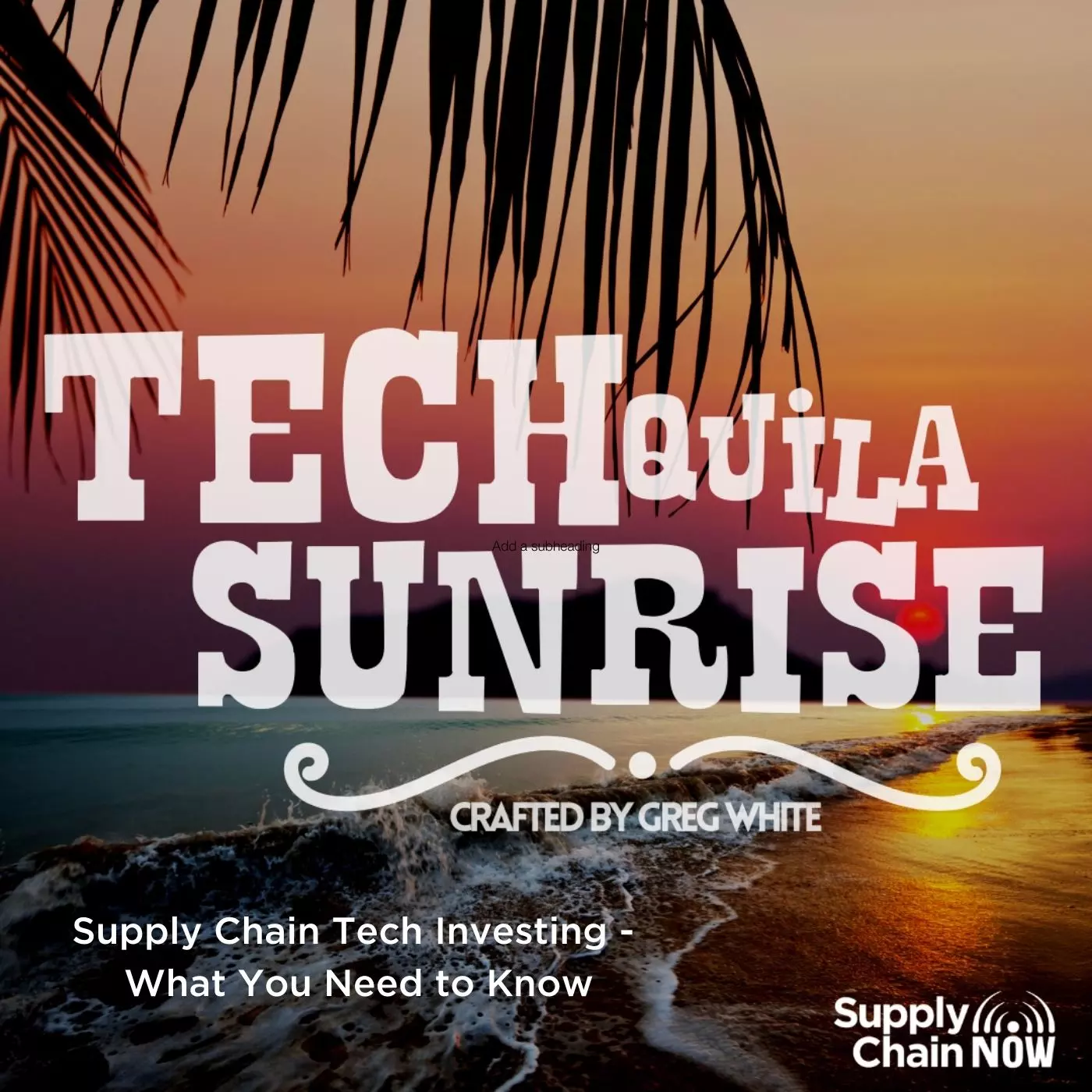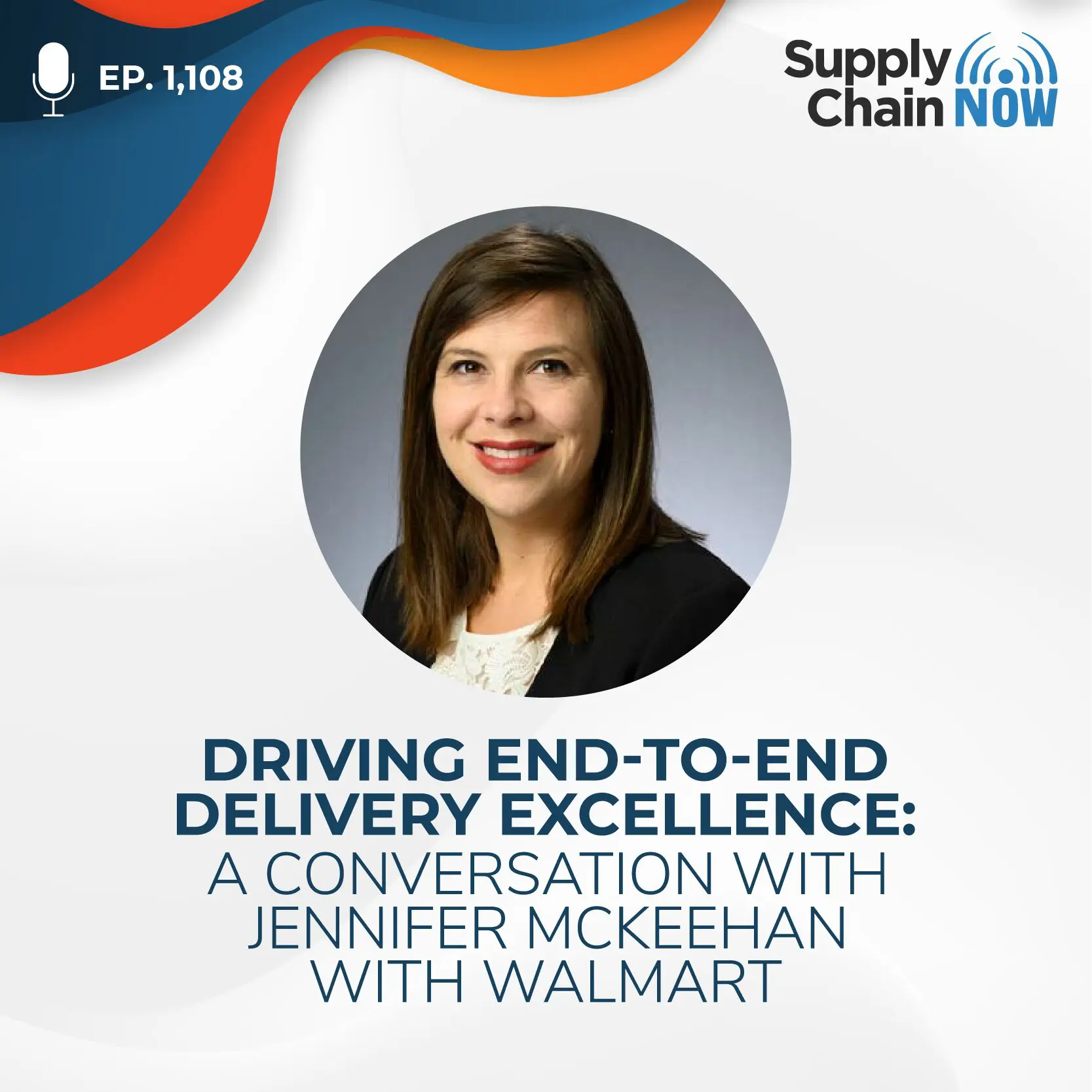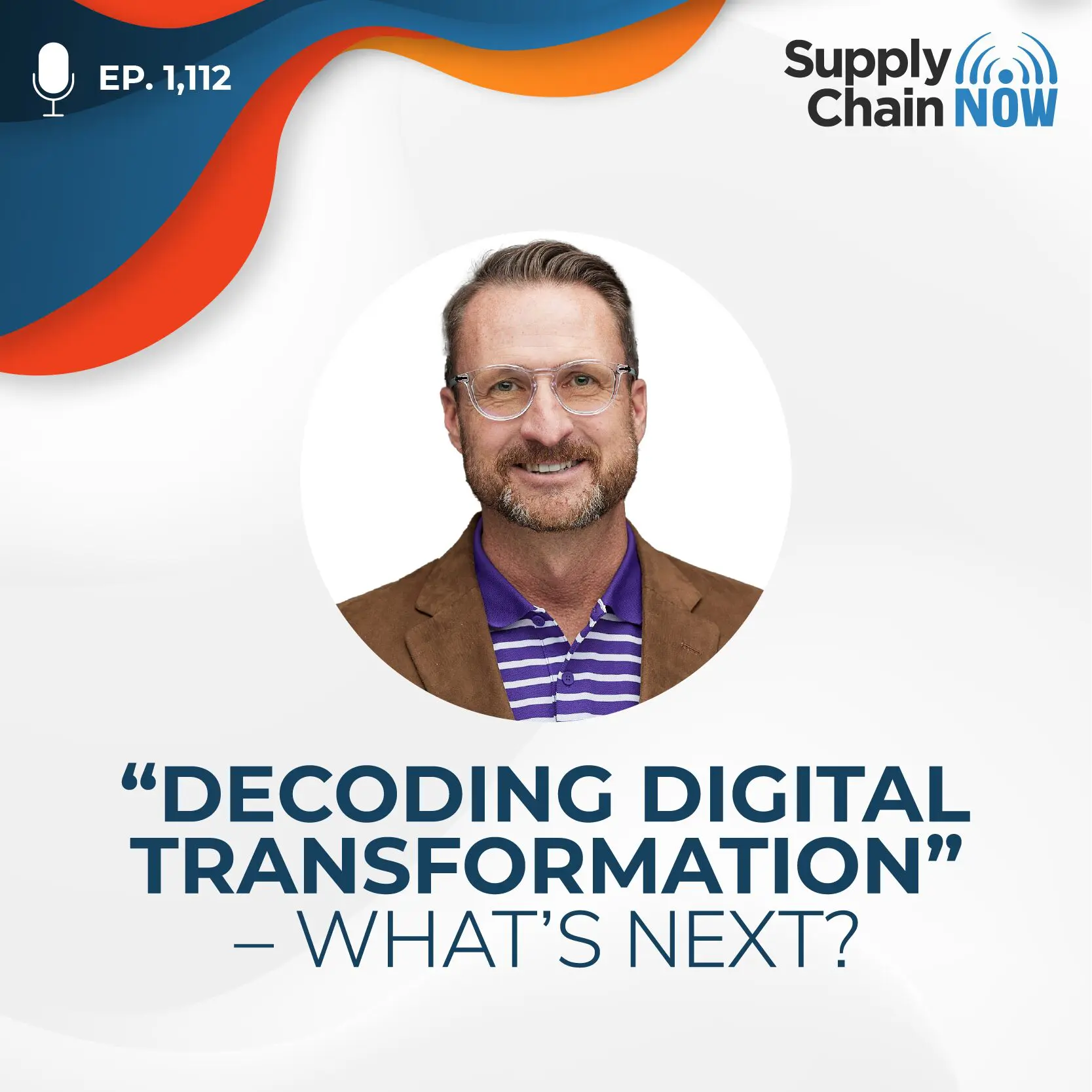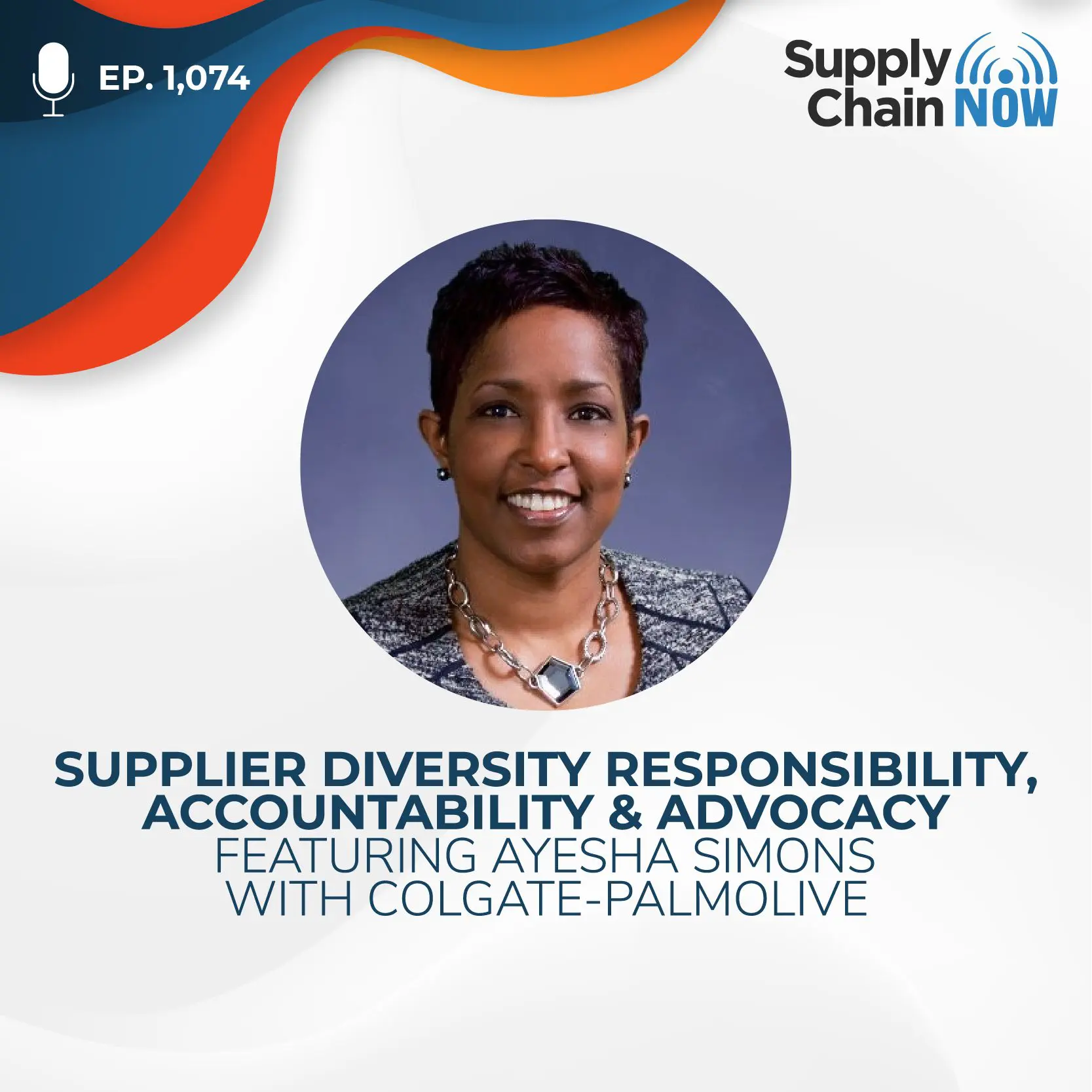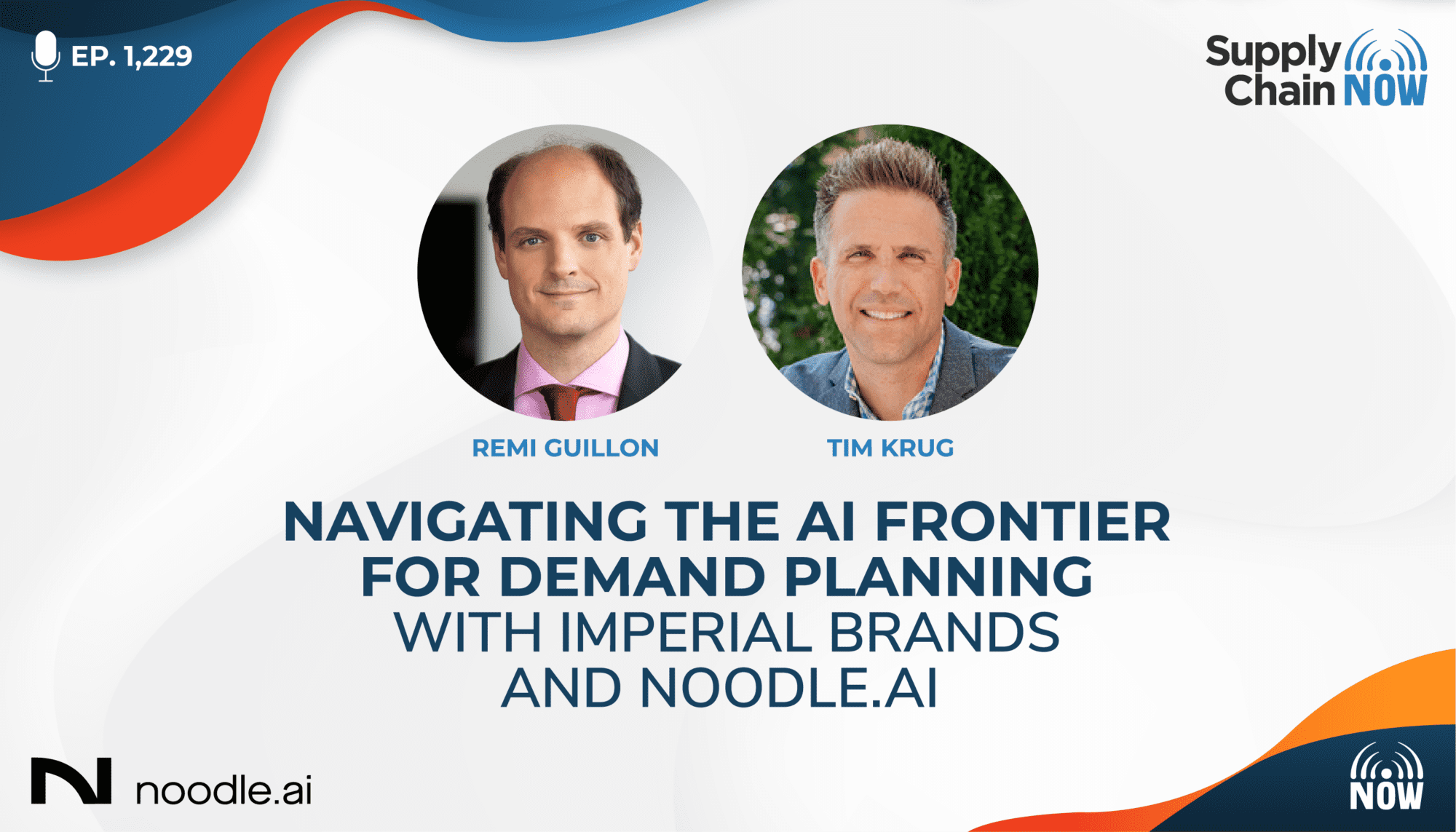
We believe that by utilizing artificial intelligence and the power of probabilities, you can tilt the odds in your favor to make better decisions and ultimately lead your company to drive more profit and not waste.
-Tim Krug
Episode Summary
In this new episode in the “Making Better Supply Chain Bets with the Power of Probabilities” series with Noodle.ai, hosts Scott Luton and Greg White are joined by the CRO of Noodle.ai, Tim Krug, and the End-to-End Planning and Support Director with Imperial Brands, Remi Guillon.
Join us as they delve into the transformative story of a fast-moving consumer goods company, highlighting the adoption of innovative planning approaches through the lens of artificial intelligence.
Listen in and learn more about:
- Probabilistic supply chain planning and the future of AI-driven decision-making
- The human element in supply chain transformation and the cultural aspects and leadership role in embracing technology
- The significance of trust between partners and what it takes to create unbiased forecasts
- The importance of data cleanliness, change management, and acting with integrity
Episode Transcript
Intro/Outro (00:03):
Welcome to Supply Chain Now, the voice of global supply chain. Supply Chain Now focuses on the best in the business for our worldwide audience, the people, the technologies, the best practices, and today’s critical issues, the challenges, and opportunities. Stay tuned to hear from those making global business happen right here on Supply Chain Now.
Scott Luton (00:30):
Hey, good morning, good afternoon, good evening, wherever you may be. Scott Luton and Greg White with you here on Supply Chain Now. Welcome to today’s show. Gregory, how you doing today?
Greg White (00:40):
I’m doing very well, Scott. How are you doing?
Scott Luton (00:43):
I am doing wonderful. Excited about this show today. We’ve got a jam-packed show, and, Greg, great to have you back. We’ve been really enjoying this limited run featured series here today where we’re partnering with Noodle.ai on this really popular project, the podcast series entitled Making Better Supply Chain Bets with the Power of Probabilities. Greg, it kind of just rolls off your tongue, doesn’t it?
Greg White (01:08):
Off yours, yes. We talk a lot about AI and how it’s going to get used and of course it’s all the rage now, but folks at Noodle were maybe a little ahead of that curve, don’t you think? So it’s good to talk to somebody who’s been doing it for a while and doing it for a practical purpose other than kind of the parlor tricks we see with some of the other use of it out there. So, I think it’s important for people to see how it can be applied in a practical environment.
Scott Luton (01:35):
Well said, Greg, hundred percent. So to your point, we’ve got a great conversation here today. We’re going to be diving into a transformation story that is being built at a global, fast moving consumer goods company, a transformation, especially focused on building an entirely new innovative planning approach with big, big outcomes. All right, Greg, one last question before we bring in our guests, planning, one of our favorite topics, huh?
Greg White (02:00):
Some of us have made our living doing it, Scott, so we have a particular passion for it. So, yes, I’ve been on every side of that. I’ve been a practitioner not using a technology, using a technology, building a technology, selling a technology, implementing a technology just a few thousand times.
Scott Luton (02:19):
Well, we have got a ton of expertise here today for this conversation. So, I want to introduce both of our featured guests here today. We’re going to start with what I think is an inspirational supply chain leader with almost 20 years of experience in supply chain management and manufacturing across five different countries. After spending close to 12 years with Procter and Gamble, he also held leadership roles at Coty prior to his current role. I want to welcome in Remi Guillon, end-to-end planning and supply director with Imperial Brands. Remi, how you doing?
Remi Guillon (02:50):
Hey, I’m doing super well, thank you. Thanks for having me joining.
Scott Luton (02:53):
Well as if Remi, Greg, isn’t good enough solo. We’ve got —
Greg White (02:58):
And gosh, don’t you think he ought to be?
Scott Luton (03:00):
That’s right. We’ve got another one-two punch. We’ve got a second guest, a repeat guest, that set the world on fire. Now our second guest also brings almost 20 years of leadership experience to the table, especially in the wide, wide world of technology. And y’all know I love this. He’s passionate about helping customers, quote, conquer waste and boost profits. Let’s welcome in Tim Krug, chief revenue officer with Noodle.ai. Tim, how you doing?
Tim Krug (03:26):
Doing well. Thanks for having me again, Scott and Greg.
Greg White (03:29):
Yeah.
Scott Luton (03:30):
We had a blast last time, tell you what, and I cannot wait to get into the topics here today, Greg. And we had a little fun, Greg. We had some fun on the frontend of the show in the green room as we were catching back up with Tim and getting to know Remi. And, Greg, we found out some interesting things about Remi Guillon and his family, didn’t we?
Greg White (03:52):
Yes. Interesting and funny. So, yes, please let him share. Yes.
Scott Luton (03:57):
So, Remi, let me tee this up for our audience, because we already kind of know the inside joke. A little birdie told us that I think your 11-year-old daughter left a door open and some family pets got out. Tell us more, Remi.
Remi Guillon (04:10):
Yeah. I’ve been — this morning I was working from home today and I’ve been chasing rabbits in the garden, five rabbits, three of them escaped and I’ve been running in the garden, trying to follow some meeting at the same time, just has been — I’ve been delighted to do that while my daughter was at school. Yeah.
Scott Luton (04:30):
So that takes Zoom to a whole new level, Remi, chasing rabbits, to try and knock —
Greg White (04:34):
It’s not exactly a dog barking.
Scott Luton (04:36):
Right. Well, Remi, you must be in great shape and I can’t wait to get more into your expertise and perspective. Now, Greg, Tim, we’re talking pre-show, Greg, our whole global audience knows huge longtime Kansas City Chiefs fan. Now, Tim, folks learned on the last show he was with us, he’s a big Chicago sports fan all around. So, the Bears, the Chicago Bears just wrapped up a season, Tim. Tell us about maybe this last season didn’t give you a highlight, but what’s one of your favorite highlights of all time being a big Bears fan?
Tim Krug (05:09):
Well, I think it started as a great highlight and then it went downhill from there, but it was 2006 and the Bears were in the Super Bowl, the last time they were in the Super Bowl, playing the Indianapolis Colts. And on the opening kickoff, Devin Hester returned it to the house, scored a touchdown on the opening kickoff. And that was pretty much the highlight of the game because Peyton Manning took us to task after that. And I don’t know if that’s more depressing or the fact that the Bears drafted Mitch Trubisky instead of —
Greg White (05:43):
Patrick Mahomes.
Tim Krug (05:44):
Yeah, Patrick Mahomes, your once-in-a-lifetime quarterback.
Scott Luton (05:49):
Truly.
Tim Krug (05:49):
But yes, Devin Hester, we were screaming and extremely excited at the beginning of that game. So that’s a highlight for me.
Scott Luton (05:58):
Rabbits, Bears and Chiefs. Oh, my, Greg, do you want to compare and contrast? I mean, the Chiefs recent years have been remarkable. What do those Bears teams of old bring to your mind?
Greg White (06:11):
Well, so I did live in Chicago for a short while, while the ’85 Bears, the greatest defense in NFL history, was destroying everyone. The only thing I wish they had not for lowlight, if you want to give me a Bears lowlight, was the music video that they did.
Scott Luton (06:28):
The Shuffle.
Greg White (06:29):
Yes.
Scott Luton (06:32):
Oh, I love it.
Greg White (06:33):
But it’s still fun to go back and watch and every once in a while they play it on a network show or something like that.
Tim Krug (06:39):
Scott, we got to test your editing team to see if they can put the Shuffle in somehow in between this podcast.
Greg White (06:45):
Oh, I like that. Yes.
Scott Luton (06:46):
I love that idea. Well, Remi, Greg and Tim, if we could also do the Super Bowl Shuffle — no, that’s a bad idea. We’ll save that maybe for the next show. Well folks, Remi and Tim, great to have you both here. Greg and I are really looking forward to diving into a great story with lots of actionable takeaways. And where we want to start, Greg, you and I, we like making sure we got context on the frontend as our listeners try to listen along with us. So, Remi, I want to start with you. Tell us, if you would, about Imperial Brands in a nutshell and your role there.
Remi Guillon (07:18):
Yeah. So, Imperial Brands is one of the, let’s say, big tobacco companies, so also diversifying it to what we call next generation product, e-cigarette, e-tobacco. And as part of it, I’m leading the end-to-end planning organization and I’m reporting to our chief supply chain officer.
Scott Luton (07:38):
Okay. Man, that is succinct and to the point. Greg, I love that. I mean, you throw the guy, tell us to give us something in a nutshell and he delivers, Greg, huh?
Greg White (07:47):
In a nutshell which is rare. Thank you, Remi.
Scott Luton (07:49):
It is.
Greg White (07:50):
I can see you’ve been working in Germany for a while now.
Remi Guillon (07:55):
If you want to know, I am French very clearly, but I live in Germany and I feel very German in my way of operating. So, I used to say I’m a German with a French accent. Sorry, I’m diverging.
Scott Luton (08:11):
Remi, I could listen to you, I think read through a phone book. I think you’ve got a gorgeous accent. All right. So, Tim, for the handful of folks, maybe for our new audience and members, since you joined us last time, in a nutshell, tell us about Noodle.ai, who we partnered on this highly collaborative and popular series.
Tim Krug (08:28):
Yes. Noodle.ai is a supply chain SaaS software company focused on making the power of probabilities and artificial intelligence possible for planning today. And today we’re going to be focused I know with Remi talking about demand planning specifically.
Scott Luton (08:46):
Very nice, Tim. Now, Greg, I got to pull you in here. Greg — it’s tough to pass his test, but when he says something, he means it. And, Greg, on the frontend were talking about how innovative and kind of ahead of their times Noodle.ai was. Any other elaboration on that, Greg?
Greg White (09:02):
Yeah. I think, I mean, you know my usual mantra, listen up, because you’re going to hear some really important things about not just how Noodle is putting AI to work in technology but how it is actually used in real life with practitioners. And that’s really critical because as we’ve discovered or we’ve talked about a lot, a lot of this job is often done with human discernment and as we also know about 86% of the time humans are wrong. So, there’s a real study out there that can prove that and innumerable company bankruptcies, but it’s an important aspect of the business, demand planning, demand forecasting, all of that sort of thing, because those pesky consumers or retailers, depending on who you’re selling next to, they’re very unpredictable. It’s like they don’t do what you want them to do. They do what they want to do.
Scott Luton (09:59):
Imagine that. I’ll tell you what, good stuff there, Greg. All right. So, Remi, we want to dive into the planning transformation that you’re leading, you and the team in Imperial Brands. I want to start with this though, kind of a two-part question. Why embark on this journey in the first place, and then kind of secondly, what were some of the gaps you’re looking to overcome, especially related to the legacy planning process and systems?
Remi Guillon (10:22):
Yeah. So, I mean, why embarking is — actually, I’ve been joining Imperial to drive this end-to-end supply chain transformation. When you look at the supply chain, we’re, let’s say, still very traditional, okay. We’ve been still doing monthly planning most of the places. So, as a company, tobacco is more traditional and has not been as forthcoming as what I may have seen as Procter and Gamble or other companies and value of having agility and driving process and standardization and moving forward. I’ve been exactly taking it on, starting a big work of centralization, so building a new planning, been more so in Poland with more than 300 people now where we are centralizing our planning and a portion of it and we’re going to talk more today is about centralizing the demand planning. And there is always discussion, do you centralize but how do you get intelligence from the markets? I think we’re going to have more time to talk it a bit later.
Scott Luton (11:23):
We are. We certainly are. And kind of on the start of your answer there, changing how business has done, moving from that very traditional method of managing organization, supply chain planning, and building a much brighter future by changing how business gets done. Tim, I want to bring you in before I get Greg’s comments, your thoughts on Remi’s why and some of those gaps you’re overcoming and how does all that square with what you and the Noodle.ai team sees out there with some other customers.
Tim Krug (11:52):
Well, one of the things that I know our entire team has appreciated about working with Remi and the Imperial team is the desire and seeking out to understand the details and really inspect the technology, inspect the problem statement, their own problem statement, and to evaluate in detail how the technology that Noodle provides or really any vendor provides, how is it going to actually going to change the process, transform the process, and at the end of the day make people’s lives more enjoyable and drive the business outcome. So, I know that that’s something that, as an AI company, that’s the depth of our differentiation and the sophistication of the technology is sometimes it’s hard to explain in a concise way, but Remi’s appreciation of the details really helped us shine and I know it’s a big part of our partnership.
Scott Luton (12:45):
All right. Greg, and you saw — if you’re listening to this episode, folks, you didn’t see the big smile across Remi’s face as Tim was sharing his perspective there. But I loved what Tim said here and I think I wrote it down vastly. So let’s see if I can read my writing, Greg, allowing your team members to live more enjoyable lives while driving business outcomes. But, Greg, your thoughts here on the why and some of the gaps that are being bridged.
Greg White (13:09):
Yeah, two things. Let me decode a couple of things here. One is traditional is a very generous term for supply chain. I would say laggard is more appropriate. We too slowly adopt and implement technology. So, congratulations, Remi, to you and your team for jumping into it and making it happen. The other is having been again on both sides of the table, I was Remi at one time, detail-oriented, which means a huge challenge to the technology company because scrutinizing every minor detail — I can see the look on Remi’s face, that’s essentially what he is doing. But also that is a great and powerful relationship because it forces the technology people to view it from the client’s perspective and improve the technology just that much more rapidly. Frankly, people didn’t thank me for being that kind of client, but when I moved to the tech side having seen the value of it, I thanked them for it because those constant challenges are important to us because we’re out in the field, but we’re not in the detail very often when we’re implementing technology. So knowing the details of what’s going on is important. And then, of course, planning being that thing that people used to do. I called it TV planning. They would take all their materials home or their laptop home and plan in front of the television because you could never get a day’s work done in a day’s time. So, the simple benefit of being able to get a day’s work done in a day’s time is an incredible benefit to people in the planning industry.
Scott Luton (14:34):
Well said. That brings to my mind, Greg, for me, not so much planning as going through a grocery bag full of quoting back in the day. Holy cow. I don’t know what I was watching with my kids back in the day. Remi, I want to shift gears for a second. You were smiling from ear to ear as Tim and Greg were sharing a couple of things. Give us some of the why behind that smile and then we’re going to move to the demand signal.
Remi Guillon (14:56):
Okay. I can do, I can do. It’s just that I have memories of the lead engineer, a lady, which have been challenging or trying to help me understand. I’ve learned a lot of stuff on what is a confidence interval versus a prediction interval. So actually what Noodle.ai does is a prediction interval. We were also talking bias versus accuracy and the way we can’t optimize both at the same time and also what the client wants, my priorities, the bias optimization might not have been what Noodle was working on. So, aligning us together is also super important and the connection at the beginning is difficult when you have a person which is more engineer, more tech-oriented, it’s good also the exposure and also for me to understand how it works in a bit better in the background and what the limitations are and how do we go around with that.
Scott Luton (15:52):
Okay. So, as you and the team set out on this journey, Remi, to lead this transformation and to, as you put it, optimize the overall value, right? It’s bigger and broader. I love your vision there. Why start with the demand signal, Remi?
Remi Guillon (16:07):
Yeah. So, when I look in total in the transformation, I mean we’ve been attacking it from multiple angles. So, we’ve really been looking at how do we drive the organization. Now in terms of looking the demand signal, it has been a natural start for the transformation and the technology in the sense for multiple reasons is one, there is a lot less integration needed. A pure practical topic, yes, when you start to get a factory planning in a planning system, the resilience of interface data and a lot to fix. Where here with Noodle.ai, I view that as a forecasting engine. Yes. So, we have been building all the elements we needed and then it can run and then it can help us with the outcome to make a better forecast. It has a limited amount of integration I need to do, which in the landscape in my company is, it was an easier target to start with.
Scott Luton (17:05):
Okay. Greg, your comments around starting with the demand signal first?
Greg White (17:09):
Well, I mean, demand is what the company exists to fulfill, right? So, you have to start with what people are going to want or what you expect them to buy, how you might drive into that, how you might promote goods or price them differently to drive into that. But ultimately the supply chain is fundamentally a response. We try to predict it, but fundamentally the activity, the real activity in the supply chain is a response to actual demand. So you have to try to capture that and then predict it effectively and then build response mechanisms based on how accurate your prediction is.
Scott Luton (17:47):
Well said, Gregory. Tim, any quick response there in terms of where we start?
Tim Krug (17:52):
Well, as you know in the title of this series is Making Better Supply Chain Bets and we view supply chain decisions as bets because they have uncertain outcomes with economic consequences. And the first bet that you make specifically as a consumer goods company is the demand bet, right? You have to make decisions on what you’re going to buy, build, transfer, and prepare, get to the shelves for consumers to buy, well and ahead of the true demand. And so, that’s the first bet that you need to make. And we believe that by utilizing artificial intelligence and the power of probabilities, you can tilt the odds in your favor to make better decisions and ultimately lead your company to drive more profit and not waste.
Scott Luton (18:43):
So, let’s see, if I can share this poker analogy accurately. If we leverage what Tim and Greg and Remi are talking about, we can sit on less 16s at the blackjack table, right? All right. So, Remi, let’s keep driving, let’s keep driving. Why do you feel that an augmentation approach versus an embedded approach with a traditional advanced planning system — why is the augmentation approach preferred? Your thoughts, Remi.
Remi Guillon (19:11):
Again, what I was looking is really a forecasting engine or an element to do demand planning and forecasting, which enables me to ingest business intelligence from the business. And this is something — I had some projects. Let’s say, my previous life, previous company, we tested with one of the big providers. Their demand, we augmented with AI-ML and we just did not — we failed completely. We stopped it, not able to really — the difficulty is not the statistical forecasting from the past. The challenge is, how do you ingest intelligence? What are your commercial plans? Is there a tax increase? When is it coming? And so that you learn from the past the pattern and you get them in the future. And this is something I have seen and again I’ve looked at a lot of companies and there were clear signals when I looked in Noodle.ai, but tells me it’s not like a pre-program in the background. Someone makes the model and you run it. This is something that truly learns from the data that we were just [inaudible]. To me, it was my previous company still. And what I’ve noticed is predicting for months plus four, one of the indicators they found was the current orders on the book currently. With a small weight, but just no one would ever program it or make a model that say, “Okay, the current orders in your system today are a good predictor for months plus four,” but the AI-ML looks the correlation and say it’s correlated and there is a small impact on months plus four orders based on the current month’s order. It’s not about this finding, it’s more I knew but in the background it’s not a human which has made a way. But the AI-ML, I found the correlation on its own and has defined the model. I’m going also a bit into why Noodle.ai is a better source than what I found out.
Scott Luton (21:10):
Yeah. We’re going to dive into that in just a minute. Greg, what I heard there at least partially in Remi’s response is those cookie cutter systems that force you into pre-programmed calculations that actually bring more complexity and friction to the organization, that’s a part of what I heard. What’d you hear there, Greg?
Greg White (21:26):
What I heard is that there’s a recognition on both Remi and Tim’s side that, to quote, every single stock prospectus you’ll ever read, past performance is no indication of future value. So you have to temper that with what you know about the present in order to predict the future. So, that recognition alone is a quantum leap from where we are. I mean, let’s face it, the way we’ve been forecasting for the last 121 years is based on 121 to 151-year-old forecasting techniques. And those forecasting techniques were developed not because of a wealth of data but because of a lack of data. And now we have this incredible wealth of data that we can learn so much more from. So something that continually and consistently learns from the wealth of data that we have these days is obviously much more powerful.
Scott Luton (22:19):
Well said, Greg, that dearth of data. Tim, your comment on what Greg and Remi just shared there or going back to where we started a second ago with that augmentation versus embedded approaches. Your thoughts, Tim.
Tim Krug (22:30):
One of the things I was reflecting on just listening to Remi was in business and particularly in the way that we run our business and our approach is it’s a series of steps to earn trust and confidence. That’s what business is. And Remi first heard of Noodle at his previous company before joining Imperial, but it was a series of steps when he was at his previous job and then going to Imperial where we delivered value and trust and confidence that enabled this relationship to get started. And I think one of the things about really all technology but in particular supply chain technology is that there’s a lot of burn victims, what I’d call burn victims. I’ve worked at Kinaxis for a decade and I saw burn victims for a decade there and I’ve seen a lot of burn victims already at my time at Noodle where people have made big promises over promise and underdelivered. I would advocate taking the approach that Remi took in partnership with Noodle, is going through a series of steps to earn trust and confidence and that that’s what builds relationships that deliver value.
Scott Luton (23:46):
Well said, Tim. I got a quick follow-up question for you. Remi, I’m coming to you in just a minute because we want to explore more about your why for partnering with the Noodle team. But, Tim, earning trust and confidence, I love that phrase, and my hunch is on the start in as you’re initially meeting some of these business leaders out in organization that y’all haven’t worked with yet, you’re meeting all kinds of planning teams and leadership that don’t have that trust and confidence with their current approach. Your thoughts there, Tim. That’s kind of deflating to be in that environment and have to make tough, big, small decisions, huh?
Tim Krug (24:17):
It is, but that’s part of the world that we live in today. I think the way that you do that is you need to become an expert, a subject matter expert in the domain that you’re in and take a consultative approach to really trying to help somebody solve their problem, put yourselves in their shoes. If you can do that and act with integrity and come with a prescription, then I think that ultimately earns the right to spend time with people and deliver business value to them.
Scott Luton (24:48):
Well said. All right. So, domain domination. Remi, a little phrase I heard there from Tim, seems like you and Imperial Brands partnering with Noodle.ai team, you’re all making a bit of progress in that regard. So, tell us why partner with Tim and Noodle.ai team, Remi.
Remi Guillon (25:04):
Yeah, so I mean in the process at the beginning, we look different options. I say from the past I’ve been burn kid as you say, team with another big planning company. When I started, [inaudible] some work happening with a big consulting company which we’re proposing services offshore in India to do forecasting. We did some testing. We just saw statistical forecast, fantastic. Beyond that, augmentation is just not the key strength. And then, I dig back Noodle.ai from, I remembered from the technology and the small detail that I noticed there is a real engine AI in the background. Then, we did extensive proof of concept, something like six to nine months on different markets just to make sure I’m not burning again a second time. But we did quite extensive and just to prove on, not live data, data we prepared, no, no, but see the engine gives as good or better result than our own teams were able to do, start to configure, start to learn from that before we really enter and starting working on it. So that’s a big portion of that.
Remi Guillon (26:10):
Second portion is I actually personally truly believe in the probabilistic aspect of Noodle. And again, I know we’re working with them only on demand currently. I still have a lot to do on the supply, have a proper planning system implemented. But two years from now, I’m most likely going to come and have a look at supply and inventory probabilistic approach. And instead of having — you have demand minus supply equal, you are barely out of stock or you are out of stock, get density of probability of demand or the density of probability of supply, overlay them and it tells you, you have a probability of 20% to go out of stock and your average out-of-stock is going to be five days and X pieces. That’s going to be magnificent and breakthrough. I believe over time probabilistic planning is going to come the future and I have not seen it elsewhere currently other than in Noodle. And by the way, sorry, on the demand we are actually not going to interface a number to start working with our system. We are going to interface this, let’s say not confidence interval, this prediction interval. So, 80% probability, it’s going to be between X and Y because it’s going to give more insight to my planners about our share, the AI engine is about this prediction.
Scott Luton (27:29):
Okay. So, Greg, I love listening to Remi because he is excited not only about what they’ve done to date, but he is already painting a picture where they’re going two years from now. That’s a great sign. Greg, what’d you hear in Remi’s response there in terms of their partnership?
Greg White (27:44):
Yeah, well I think it expands on the discussion we just had about why do you augment versus why do you — what is it?
Scott Luton (27:51):
Embed.
Greg White (27:52):
Embed, yeah, right. So —
Tim Krug (27:54):
I kept thinking stagnant.
Greg White (27:54):
Yeah, well, I mean, let’s face it, it would be uncooked for Tim to say this, but I don’t have to be good. ERPs are, as I have said thousands and thousands of times, they’re a mile wide and an inch deep and this is an area, supply chain, and even just planning is an area worth going a mile deep and absolutely necessary to go a mile deep. And that’s why you augment instead of embed because you’re going to get one of those systems with those 121 to 156-year-old forecasting techniques that can give you a really smart mean max, if you, I mean to put it in the most basic terms instead of constantly analyzing and constantly learning and constantly accounting for all the interdependencies of supply chain like demand versus supply versus the likelihood of each being right, wrong, or how right or how wrong, all of those things, plus you’ve got economics and other things you’ve got to consider as well that these systems simply can’t reach.
Greg White (28:52):
And so, you’ve got this sort of one tier, right? So, the tier of company that I had didn’t have AI, we were much older, Tim. So, they started with great forecasting and economics and balancing the supply and demand and all that sort of thing. But now you’ve got these companies that have this AI technology and are using it to create much more intellect, provide greater decision-making information. But also, if not already doing it, building towards the ability to make the decision for you and show you the why which is important because the why of demand is way more important than the how much of demand. The why you sold it at this amount last year informs whether any of that why exists for this year, right? Because you have a why this year for what you’re going to sell as well. Then you can start to really parse the data and the demand and be even that much more intelligent. So that constant learning aspect of it is the critical — that is the critical killer app for demand planning.
Scott Luton (29:57):
So, Greg, excellent response and we’re going to talk more about that in just a second. What a great prelude. But before we go there, Tim, you got to be beaming. It’s your turn to beam from ear to ear because that’s got to be music to your ears, hearing Remi and Greg speak about the partnership that we’re storytelling about here today. Your thoughts, Tim, on your partnership with Imperial Brands.
Tim Krug (30:19):
We believe also we’re aligned with Remi that the future of supply chain planning is probabilistic. It’s invoking the power of probabilities to drive risk-based decision making because the current systems forced you to chase certainty, certainty that we know doesn’t exist. The real world is uncertain. It is variable. And what Remi was talking about is instead of Noodle sending a one-number plan back into his system, we’re going to send an interval or a range basically that we’re 80% confident that it’s going to be between these numbers, and that changes the way that people make decisions. It empowers them. Embracing uncertainty is the future of planning because we’ve been forced to live with the lie of certainty instead of embracing uncertainty.
Scott Luton (31:18):
So, let’s take that a little bit further because not only embracing uncertainty but certainly embracing artificial intelligence and all that brings to the table here. Greg, as you and I talk about it forever, AI is not new but goodness gracious, it’s like the golden years, the golden months of AI here lately. Remi, I’ll get back to you and we’ve been kind of talking surrounding this subject, but I want to go a little deeper here. In your view, what else do companies and business leaders need to do differently to create that better demand forecast and including how they leverage AI there?
Remi Guillon (31:49):
So, I think, I mean, creating better demand forecast, and in the few companies I have been and including the current one, there is a big portion which is forecast is biased. You may know or may not know what will happen and that the uncertainty of the future. Predicting the path is easier. But when you try to predict the future, you will be wrong. But if you are always wrong because you sell less than plan or always wrong because you sell more than you plan but the aspect of the business. Again, the broader topic for me is not only, the AI is helping to get complex things simplified and ingest complex factors interacting with each other, but the core of the demand planning process to make a success for me and to drive the bias out is purely about the process and how do we do that.
Remi Guillon (32:39):
That’s the core reason why we have centralized the planning to make sure we have an unbiased, independent entity, not biased by the direct contact of the business to generate with the input of the business, of the market intelligence, the forecast that this forecast is a base which going to be, let’s say, by design or by process unbiased because the bias is not coming from people not knowing what to do. It’s more often than not in the business driven by the boss. I think the leader of the business willing to see a certain number and then the guys doing the forecast, creating a number that, oh, matches the financial plan. And it’s not only my company. I’ve seen in my two previous companies and that’s what happened in most of the cases. The challenge for me has been to design the process that keeps the accountability in the market, that ensures we can remove the buyers completely from the forecast but serve to the supply team.
Scott Luton (33:44):
So, Tim, I’m come to you next. I’m going to get Greg’s thoughts from both of y’all’s responses here. So, one of the big things that Remi hammered on in that response there, Tim, is driving the bias out, centralizing planning, a number of other things, but driving that bias out. Tim, speak to how you’re seeing leading organizations create better demand forecasting, of course leveraging cutting edge AI here in 2024.
Tim Krug (34:08):
Well, one of the things that really sticks out to me about Remi’s approach is the recognition that this is people, process, and technology all working together. It’s not a one-legged stool. You need all three of those legs to be able to drive the business outcome. And I think what AI does, particularly in Imperial’s case, is it empowers people with more data-driven information and results, more insights, and we could create a forecast that is 95% accurate every time. But if a human goes in and is biased and is not willing to push that number forward because they’re afraid of their boss, as an example, that they’re going to cause a service level issue or that they’re going to put too much stock and have a write-off or something like that, then the AI is meaningless if people are constantly over or under committing habitually. And so, I think the beauty of what AI provides in that forecasting context is arming people with greater insights and information to be able to make decisions that drive the business outcomes that they’re intending anyways. But sometimes left to their own devices, they just do what they had been doing and that leads to poor business performance.
Scott Luton (35:33):
Tim, you’re getting to one of my favorite parts of the story. We’re going to dive a little deeper into the human element in a second because as Greg put it, it sounds like what you’re doing together is truly empowering humans and that human discernment, if I stole a phrase from Greg there. Greg, before we dive deeper into the human element, what’d you hear there from Remi and Tim about the process to a better forecast with AI in and of itself?
Greg White (35:57):
Yeah. Well, I think we’ve talked about those three elements, people, process and technology. We have to let people do people things and technology and intelligence do technology and intelligence things. And often technology’s role is defining and guiding and adhering to the process and then providing information or input or feedback back to the humans and frankly limiting the exposure of humans to simply imparting their knowledge rather than imparting a number. I think that is really, really critical to the process. If they say this thing, this promo, whatever is going to happen, then the data exists to say, “Okay, the last time this promo happened with these conditions in the marketplace or the supply chain, then here’s what we got,” rather than saying, “No, we’re going with this number because I just know.” A lot of companies have gone in front of a judge after somebody said I just know. Chapter 11 is what I mean, Scott, not prison, though, never mind.
Scott Luton (37:06):
There’s another story there. We’re going to save that for the post-show —
Greg White (37:08):
There are companies that have had people go to prison because of that, but there are no more. So anyway, I think that that’s what we have to recognize, is that there is a balance of where people, where technology and where process contribute and there are ideal scenarios for each of those. As we say very frequently, let computers do computer things and let people do people things.
Scott Luton (37:28):
That’s right. All right. So, Remi, speaking of the people especially and the human element that I bet, I think all of us, all four of us here are big kindred spirits in celebrating the human element that drive global supply chains even in this era of technology. So, when it comes to the human angle to this transformation story, tell us more about that and what is really practically changing on the ground as it were for your planners there.
Remi Guillon (37:51):
Yes. So, I think different, I love what the team was mentioning or what you were highlighting, Greg. And again, the way I think and I tell my team always is this is a process, then there are people and there is technology. And as the team says the technology supports the people, naturally the people support the process, and obviously we need to create the right conditions for the people to be able to do their work, have the right tools and have the right process that makes the meaningful output. So, a lot of things which have been changing and I was mentioning, I build a new planning organization, a key focus has been on hiring not the technical skills of the people actually. Number one has been the cultural element. Are they going to fit? Are they going to be good team members, collaborator? Are they going to be able to talk to the market, understand what are the intelligence, what is happening, what is the dynamic? Exchange with them, challenge them back also on the assumptions they are making.
Remi Guillon (38:50):
You mentioned, Greg, last time there was a promotion. This is the upside we saw. Why do you believe it’s going to be twice as big now with the same conditions and get the database from the AI to say, “Hey, based on the last case, this is what it would be. Now why is it different now and is it different now and have those conversations?” Actually, again, a lot of the problem in particular on demand planning as a bias is not a technology problem, is not a knowledge, is not even the 120-150 years outdated model. It’s the human element of people ingesting bias to get the results they want and not robust process, which is enabling it to pass through without being detected or caught. And you need to fix both aspects. Otherwise, AI-ML is useless, as Tim said. You’re going to get a fantastic result, not bias with a fantastic accuracy, and then you’re going to tweak it to please what the general manager of the cluster wants to see. Yes, and then you’re going to get shit out not because — even if what you put in is quality data. We might talk data later, which is one of the key challenges. But, yeah.
Scott Luton (40:05):
Love it. We like to say GSD around here, get stuff done politely.
Greg White (40:10):
Good stuff.
Scott Luton (40:12):
But, Remi, you’re talking about kind of a different GSI, GSO maybe. So, we’ll save — we’ll let folks guess those acronyms. All right. So, Tim, last thought around the human factor before we get into maybe some free consulting advice from, really, all three of y’all. Tim, your last thoughts around the human factor in play at Imperial Brands and out in industry in general.
Tim Krug (40:34):
Well, I think one of the things that has led to the success that Imperial has had under Remi’s leadership is there’s a lot of focus on trying to centralize and create COEs and standardization. And obviously as Remi shared, they’ve been successful in bringing people together and centralizing, creating that COE. But at the same time what I’ve seen in terms of influencing adoption is still giving individuals that are representing different markets, the ability to make decisions on how their market is going to approach something and what is the type of data that they’re going to use as features in the AI models instead of just forcing a cookie cutter approach and not enabling the individuals and empowering the individuals to make decisions. And I think that that human element and empowering those individuals that represent these different markets to make some of their own decisions has led to the level of adoption and the support of the process and the transformation that Remi’s been able to drive at Imperial.
Scott Luton (41:42):
Well said. Greg, save the cookie cutters for the kitchen for toll house cookies, not in supply chain management and better demand planning processes. Your thoughts, Greg, about the human element before we roll into some other topics as we start to wrap.
Greg White (41:56):
Yeah. I mean, I think the biggest discernment that the human element needs to make is to decide to advance their company by implementing these kinds of technologies. It’s true. I mean, you just heard Remi relay the numbers of manipulations that people will try to do to get the number that they in their bias believe is the right number. I mean, we had in our system people would manipulate the forecast, the lead time, the order cycle, all sorts of the economics, all sorts of things just to try to get the number. And as I said before, I think what we need humans to tell us because that can inform the AI is why, why don’t you believe the number? What do you know that the data doesn’t reflect and impart that knowledge to the technology so the technology can make the decision that the user can believe. Because let’s face it, these people’s necks are on the line every time they make a forecast or a demand plan or a supply plan or a purchase. Their necks are on the line. So they are going to continue to intervene if they don’t believe the number. But if we can get the why don’t you believe out of them and into the technology, then it becomes a much, much more reflective number of what they know and what they believe.
Scott Luton (43:09):
Wow. Nicely said, we’ve got to help them make better bets reliably day in and day out and get better results at the same time. Well said, Gregory. All right. I want to really get into in this last segment, really — there’s lots of folks where Remi and his team was, right? They’re about to embark on, maybe they’re in selection process, maybe they’re still kind of figuring out what the problem is. Maybe they’re about to set off on their own transformation story. So, let’s give them some more advice here. So, Remi, we’ll start with you. For folks out there in this case looking to get started on a very similar planning transformation of their own, where would you suggest they get started?
Remi Guillon (43:47):
Let me give an example of the way I approach. Okay? So, when I joined, I started just understanding the first few months when we are — what are the opportunities, understand from outside, what those looks like, what are the opportunities, and then really look, okay, now set the four-year journey. When I started two and a half years ago, I said, okay, in the next four years this is what we will achieve. Okay, we’re going to have the planning system. We’re going to reverse this amount of savings per year driven by reduction of rate of costs or freight cost, on logistics, and improvement in optimization in the planning. This is investment I need to do in terms of technology, in terms of redundancy of people, in terms of IS systems, and then get engaging on broader aspiration. This is what the future can look like, this is what we can deliver, and this is how we will embark in the journey so that we get the people understanding why. I don’t remember which was on the TEDx I’ve seen recently. Some people explain, you need to explain the why, then the how, and that what do you do to do. So, I focus on the why do we do that, instead of starting with, okay, this is what we do, this is how we will do and that’s why we will do. I’ve really started with why, what is the benefit, then how does it look, and then practically, okay, what do we do? Do we start with demand or we start with supply or what do we do?
Scott Luton (45:17):
I love that, Remi. We talk a lot about the WIIFM, what’s in it for me. And it seems that clearly, you’re putting a big emphasis on answering those questions on the frontend. Tim, what else would you add in terms of where folks get started?
Tim Krug (45:28):
I think there’s a lot of temptation when executives embark on journeys like Remi embarked on or even implementing technology. There’s a lot of temptation to overestimate what you can do in a couple of months or six months or a year and underestimate what you can do in two or three years. And it’s not to say that every project and value can only be achieved in multi-year transformation projects. I’m not necessarily saying that, but you have to be realistic about where you’re at, where your people are at, where their process is at, where the technology is at. And as Greg mentioned, I mean the reality is just that the most widely used supply chain planning tool on planet earth is Excel spreadsheets. That’s where we’re all making decisions for the most part each and every day. And so, in order to take advantage of the power of artificial intelligence and the things that we’re carrying around in our phones, it’s not going to happen overnight when you’re coming from spreadsheets and a bunch of manual processes and silos that have been created for decades. That’s one thing that I would encourage, set ambitious goals but try to be realistic with where you’re at in the current state and be pragmatic about steps that you can take to drive business value.
Scott Luton (46:52):
Greg, Tim just filled up my supply chain now bingo card with everything it seems like we’ve been talking about for years now. But, Greg, your thoughts there in the advice that we heard from Tim and Remi on where folks get started.
Greg White (47:05):
Yeah. I would have to say as you get started, set that outcome that you desire, determine what that outcome is and work backwards from that. Because if you go into a relationship with a technology provider or a consulting firm and you say, this is what we want to do, guess what you’re going to get? That. But instead, if you say, this is where we want to get to, they can take you there using the broad experience that they have from dozens or hundreds or thousands of implementations in companies like yours or with relatable problems or challenges or opportunities to yours. And if you focus first on the outcome, begin with the end in mind, then they can take you there. These really, really skilled companies with really good technologies can get you there. And if you continue to focus on that thing, then all of those details that Remi talked about, all of those details will fall into place because those details will come out as we are keeping our eye on the North Star.
Scott Luton (48:05):
I love that, Greg, Remi and Tim, a lot of good stuff there. I’ve got one question for each of y’all as we wrap. We’re going to be talking eureka moments with Remi and your organization, Tim, some eureka moments from across industry and then we’re going to get Greg’s patented key takeaway as we wrap here today. So, Remi, starting with you, we’re coming down to home stretch, right? Y’all’s horses, man, you’re all setting records. It’s been a great conversation here today. So, when you look back on this journey and I love how you’re looking back, you’re in the moment and you’re also looking ahead, Remi, I really enjoyed that component of your perspective, but to date what’s been a key eureka moment or lesson learned that our audience can really benefit from you think, Remi?
Remi Guillon (48:47):
So let me give — let’s say two elements, one a bit more negative and finishing on one a bit positive. And the learnings for me is just data. I mean, I knew coming in with different system not lined up, master data not lining up, but I underestimated the amount of effort to get the data clean and particularly to a state of cleanliness where you can ingest on an AI-ML engine, which you need to make an effort. Now, again, we’ve managed it. We are in the wave of going on and it’s working, but some examples where there was six too much zeros on some of the data than you see. And that’s where also you see that the AI-ML picked up correlation because one data flowed in Spain and we saw the forecasting in France and we’re just wondering why it happened because there is some correlation between the sales of France and Spain which my team never did in the past because they could never look, they have different teams. So that’s an element. Actually, that’s a good eureka moment.
Remi Guillon (49:50):
And the second one I wanted to bring was more change management is absolutely the most important. Yes. And again, I’m leading the supply chain globally and every year I do the round of all the general manager of the clusters with their lead team, go back and explain what we do, why we do that, check do they understand, do they have any concern, how do we do. This is absolutely indispensable if you want to make it a success and make it stick and get the early signals on things which are not working so that you can [inaudible].
Scott Luton (50:28):
Thank you, Remi. I love that, clean data and change management. In some cases, what’s old is new again, as always, even in these days when technology makes so many things seem so much easier. I think a lot of leaders can look past proven change management practices that don’t change. That sounds kind of odd, but you all know what I’m saying. All right. So, Tim, when you hear Remi’s eureka moments there and then you think about all, out in industry, all of the folks you’re working with and what you’re seeing, what other critical takeaway or two do you think would be helpful for our audience to know?
Tim Krug (51:02):
I think with all the smoke and mirrors that are out there with AI and the hype, we’re at the top of the hype cycle. Just going back to what I mentioned earlier is the importance of building relationships with potential partners and earning trust and confidence. And the truth is, at least in terms of our approach, it’s not that hard to prove the improvement in forecast accuracy, the improvement in bias. You can do that in a reasonable amount of time, do back testing and just demonstrate that the AI works, that the math works and that it can prove better results. And so, if vendors are trying to convince you to sign a multi-year contract without them earning your trust and confidence, I’d suggest that you consider alternatives because Noodle’s approach is to take our time and to earn trust and confidence over a series of steps and to prove that we can help you make better bets. We bet you that we can help you make better bets in supply chain.
Scott Luton (52:07):
I love that. And also, what you mentioned earlier in the show, acting with integrity. I tell you what, that sounds simple to all of us probably. But, man, finding integrity in your relationships in supply chain or elsewhere in business, it is a huge differentiating factor, at least in my mind. Okay. So, Greg, what a great way to wrap up a wonderful conversation here today. So, Greg, whether it’s from their most recent responses or earlier in the conversation here today — we covered a lot of ground — from your perspective, Greg, what is one of your favorite key takeaways from today’s show?
Greg White (52:43):
I’d have to say it is the trust and it’s the earning of trust and the giving of trust that’s required between business partners because clearly there is a lot of that here, both for Remi to select Tim and his team, but also for Tim to take the feedback that Remi gives him and to embed it into the product or to embed it into at least the configuration of the product so that it fits what Remi knows about his own business. And I think any technology like this, the core element of a planning technology of any kind is to get trust. Otherwise, you get all of those manipulations, those human manipulations that we talked about. And to get that trust, you have to be able to show, as both of these gentlemen said, the why of what you’re doing, not just what you’re doing. Because again, every planner’s job is at stake every time their reputation is at stake, every time they build a forecast, right, or they build a plan or they respond to an act on that plan. So, there is a lot of pressure on the people who do planning and execution and therefore you have to and your technology has to earn that trust and you earn, as Tim said, trust by showing your work, right? You have to show this is how we got there and this is why this works and this is why this result can be trusted by you to give you the right outcome.
Scott Luton (54:07):
Well said, very eloquent, Greg. What a great way to lead the conversation here today. You really have enjoyed it. All right. So, Remi, I bet you just like Tim, rock-‘n’-roll star out there across industry, I bet you’re going to have folks knocking down your door to talk shop with you. Have you come out and talk to their teams? Who knows? You’re going to have to have an agent. So, how can folks connect with you and the Imperial Brands team?
Remi Guillon (54:30):
I think the best way is linking on LinkedIn with me and I will try to answer, if I don’t get all of people knocking at my door. I’ll do my best.
Scott Luton (54:41):
The digital door these days I guess. But, Remi —
Remi Guillon (54:44):
Exactly.
Scott Luton (54:44):
Thank you so much for taking some time out of your really busy day to share some of your valuable expertise and experiences with our global audience. Tim, great — thank you so much for bringing Remi to the table, really have enjoyed sitting back down with you and all the cool things going on with the Noodle.ai team. Of course, big thanks for partnering with us on this series. Greg, we’ve heard from folks around the world, a lot of thought-provoking conversations and discussions. Tim, how can folks tune into, as you put it, I think last time, the year of Krug, I think as you put it, Tim.
Tim Krug (55:17):
You claimed it’ll be the year of Luton in 2024.
Scott Luton (55:21):
Oh, I did. Oh, I forgot that part. I was trying to steal your idea probably, Tim. But how can folks plug in with you?
Tim Krug (55:27):
Just like Remi said, you can find me on LinkedIn, Tim Krug on LinkedIn, or you can email me at tim.krug@noodle.ai. And we’d love to hear from you. Or feel free to check us out on our website at noodle.ai.
Scott Luton (55:43):
Awesome. Awesome. Really big thanks to Tim Krug again with Noodle.ai and Remi Guillon with Imperial Brands. Remi and Tim, thanks so much. All right. So, Greg, I’ll tell you what, this has been a really fun series, especially a great series for us to do together here, really have enjoyed making better supply chain bets with the power of probabilities with Tim and our friends at Noodle.ai that in your words doing business much different and trailblazers out in industry. Greg, I’ll give you the final word before we get out of here.
Greg White (56:14):
Yeah, I really like Tim’s analogy of making bets, and that is, think about this, think about supply chain as a game of skill based on multiple games of chance. It’s a game of chance to get your demand forecast. It’s a game of chance to get your planning forecast. It’s a game of chance once your goods are in motion, whether they’re going to show up or show up on time or show up in full. So it’s multiple inputs of chance that you have to turn into a game of skills. So, it’s a very complex and disruptive world out there. It is a myth that the supply chain is more disruptive than it’s ever been, that there are more disruptions. We’ve always had them. It’s just that until recently, nobody gave a shit about supply chain so they didn’t know. We have been dealing with multiple games of chance and turning them into a game of skill and conquering that game of skill for decades. So, hats off to Remi and what he’s done, and Tim and his team for what they’re doing to provide tools to this valiant effort and what they’re accomplishing to make companies more efficient, more profitable, more sustainable, and ultimately more pleasing as a workplace.
Scott Luton (57:25):
Yes, yes, yes, yes. I love that last point. I love all that, love the last point too. And we talk a lot about silo busting, but we got to add myth busting to your repertoire, Greg White. Love that. So, Greg, always a pleasure to knock out these conversations with you.
Greg White (57:38):
Likewise.
Scott Luton (57:39):
To all of our audience out there, no matter where you are, really appreciate you part of today’s conversation. Hope you enjoyed this episode. As we promised, tons of actionable takeaways, right? And hey, I’m going to challenge you here today. If you enjoyed today’s conversation, hey, share it with a friend, share it with your network. I promise you they’ll be glad you did. So, with all that said, Scott Luton challenging each of our listeners to do good, to give forward, and to be the change that’s needed. And on that note, we’ll see you next time, right back here at Supply Chain Now. Thanks, everybody.
Intro/Outro (58:10):
Thanks for being a part of our Supply Chain Now Community. Check out all of our programming at supplychainnow.com and make sure you subscribe to Supply Chain Now anywhere you listen to podcasts. And follow us on Facebook, LinkedIn, Twitter, and Instagram. See you next time on Supply Chain Now.
Featured Guests
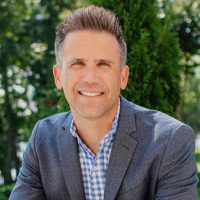
Tim Krug is currently the CRO of Noodle.ai. Tim’s”why” is to challenge himself and others so that all are inspired to do good. For him, “doing good” is living by the “golden rule” and constantly striving to treat others the way that he would want to be treated. At Noodle.ai, Tim helps global supply chains implement Enterprise AI for good so they can conquer waste and boost profits. Connect with Tim on LinkedIn.
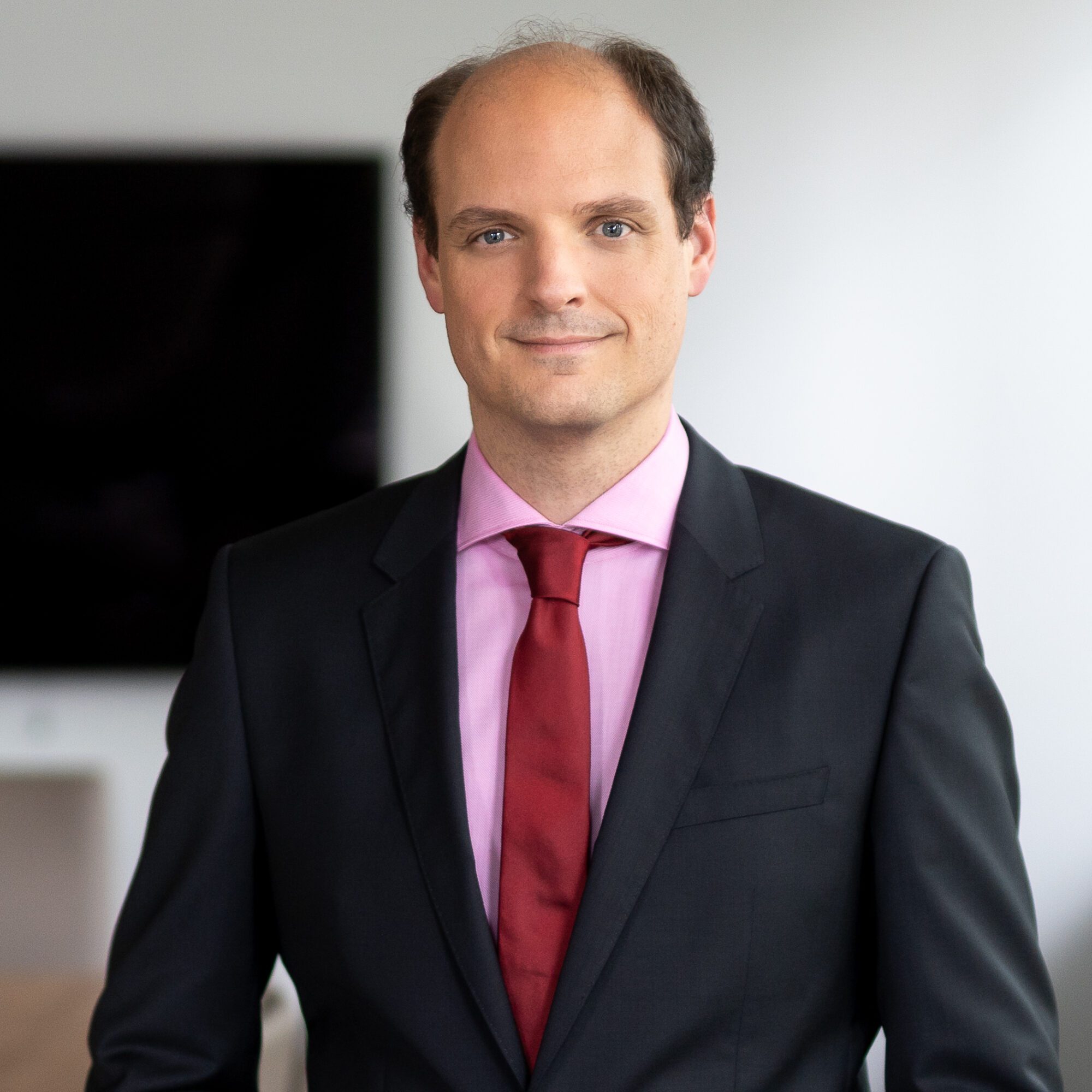
Remi Guillon is an experienced Supply Chain Professional with nearly 20 years of Supply Chain Management and Manufacturing experience across 5 different countries. He started his career at Procter & Gamble before moving to Coty. He is now leading the Global E2E Planning & Supply Organization at Imperial Brands for which he is driving a major Transformation and Integration of the E2E Planning Organization. Connect with Remi on LinkedIn.
